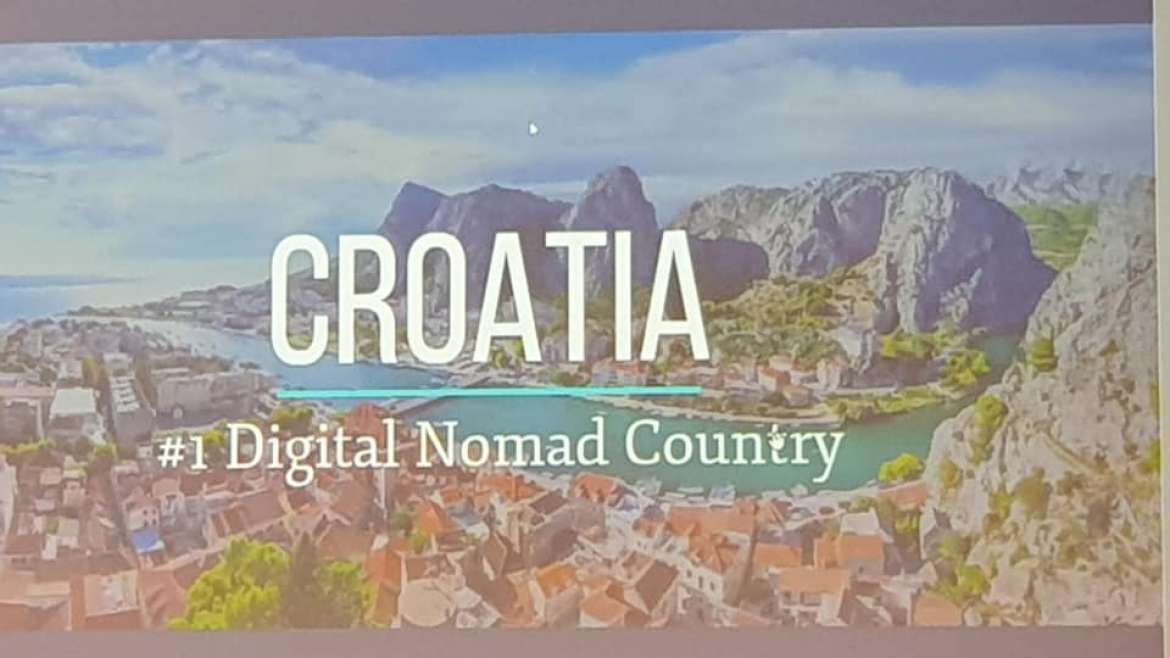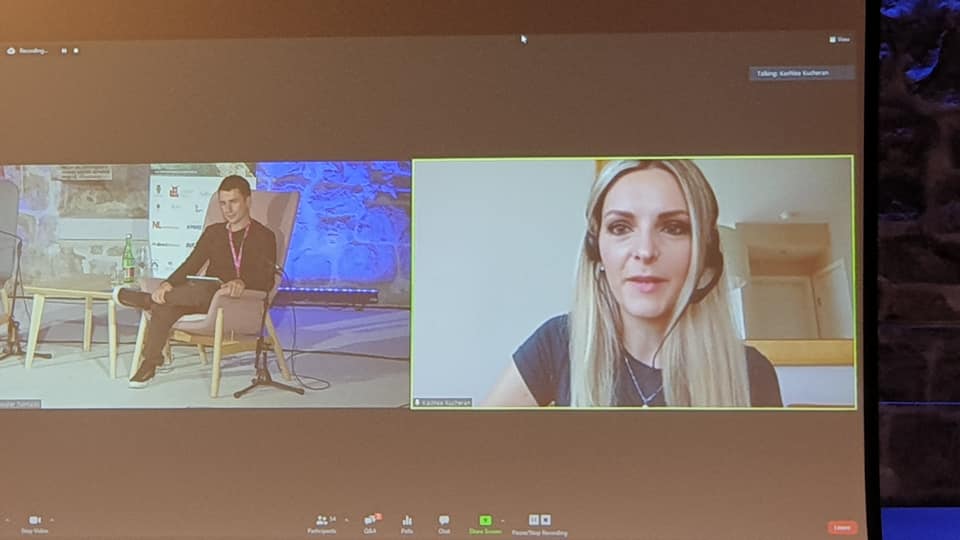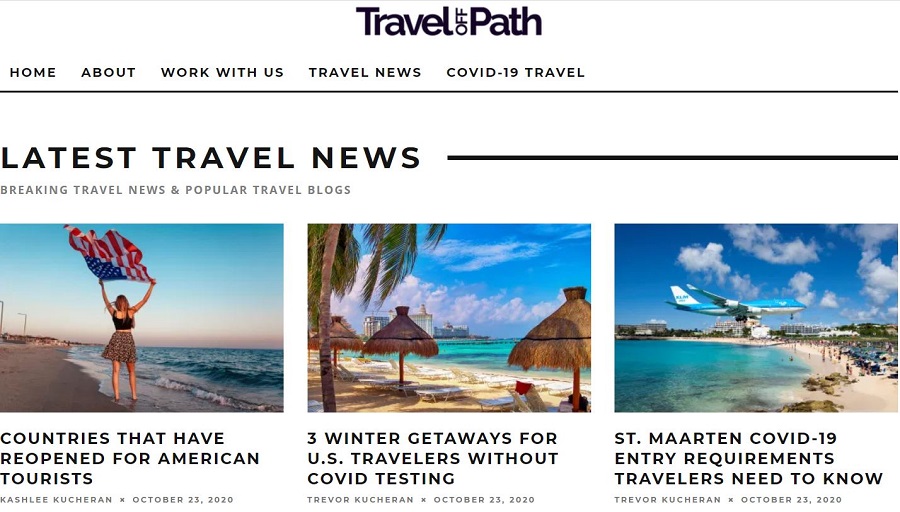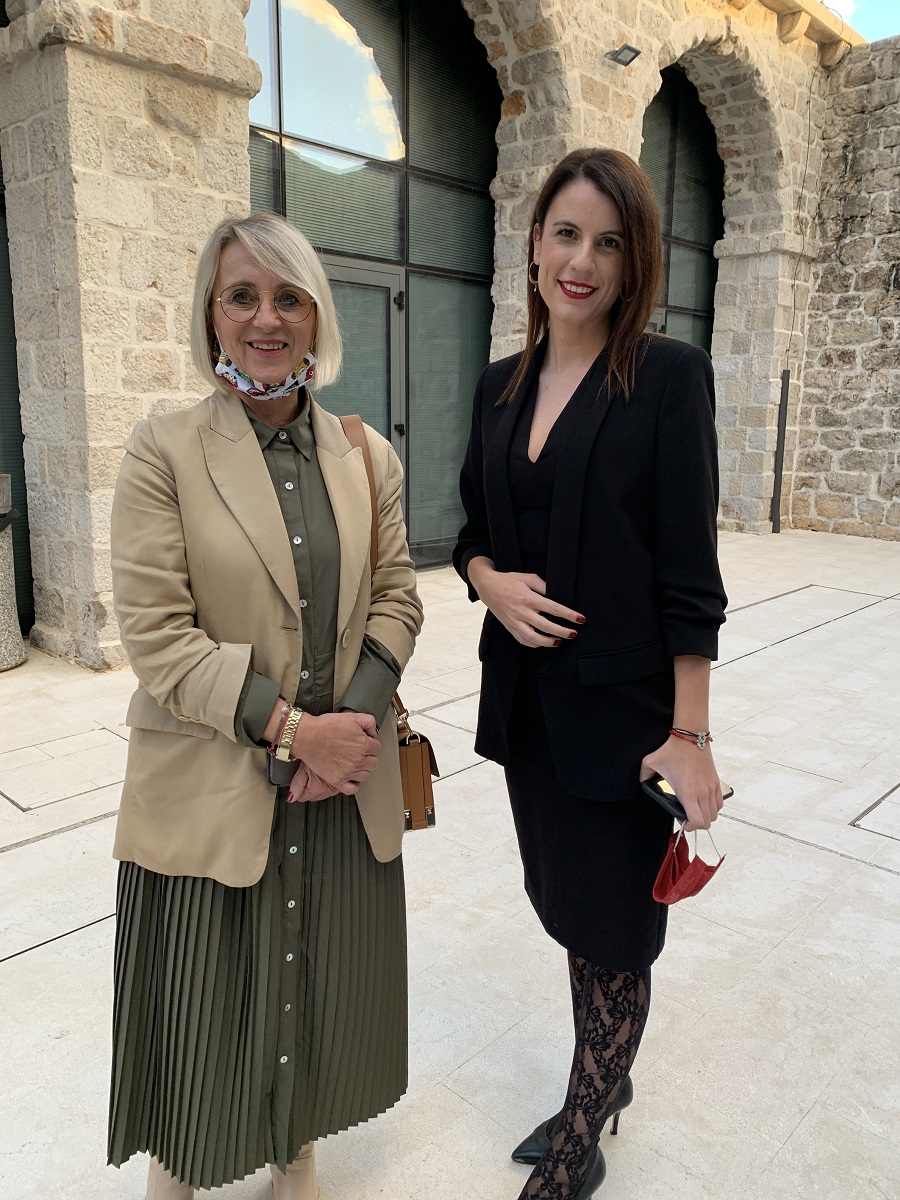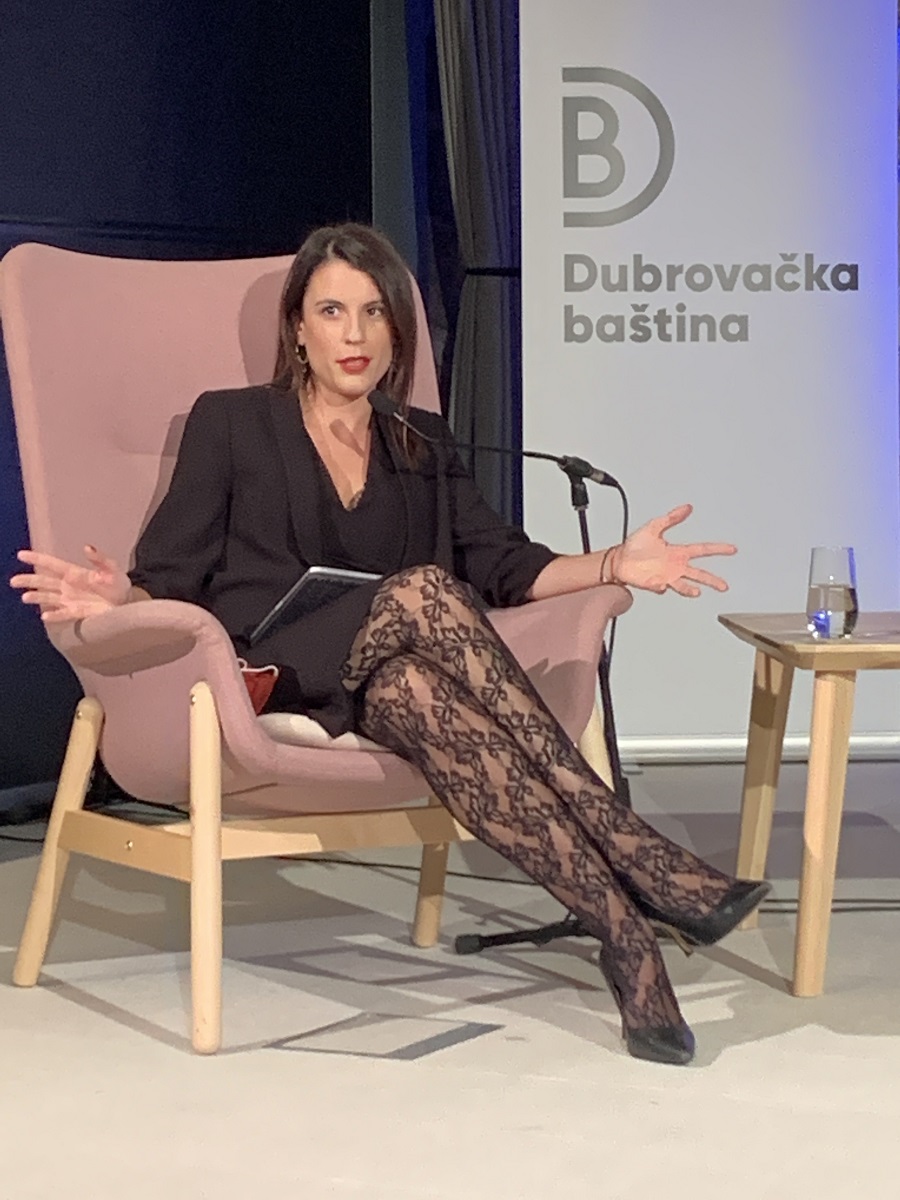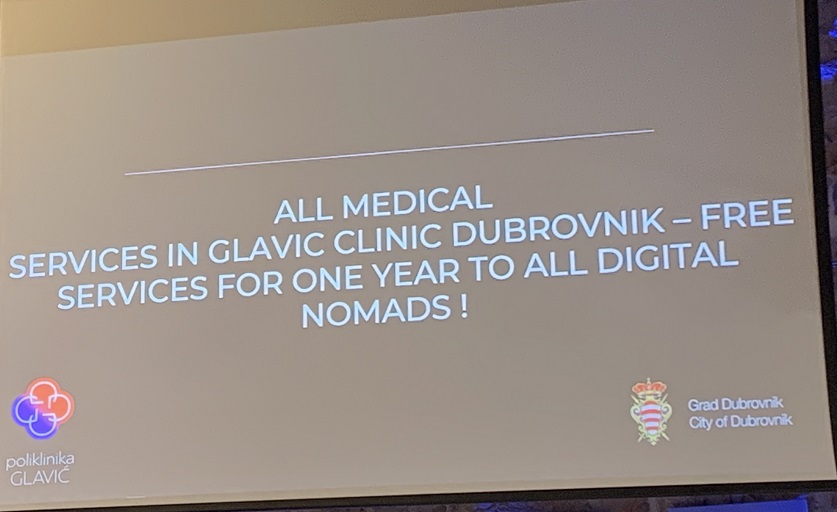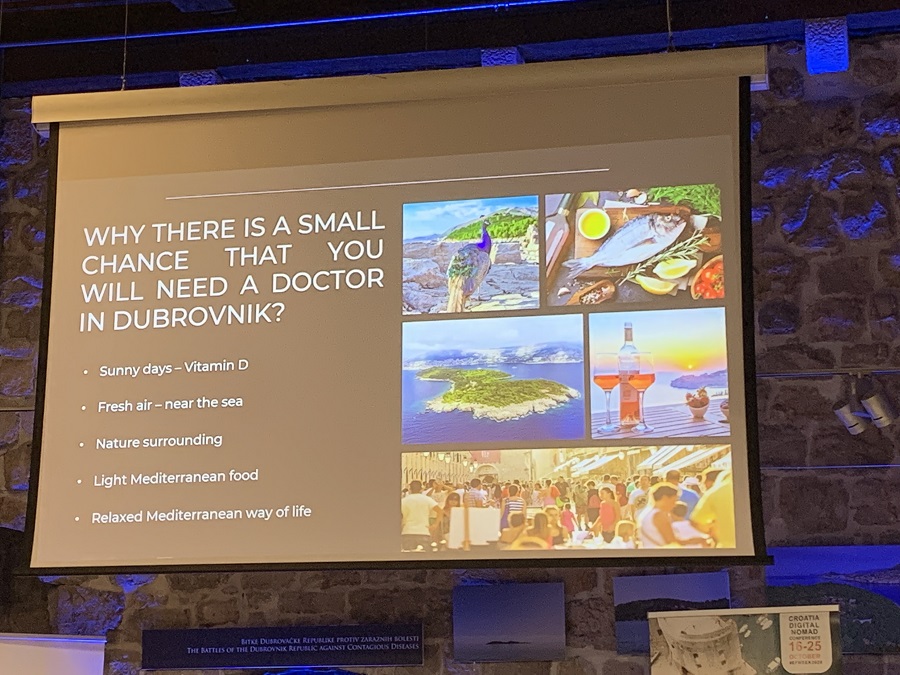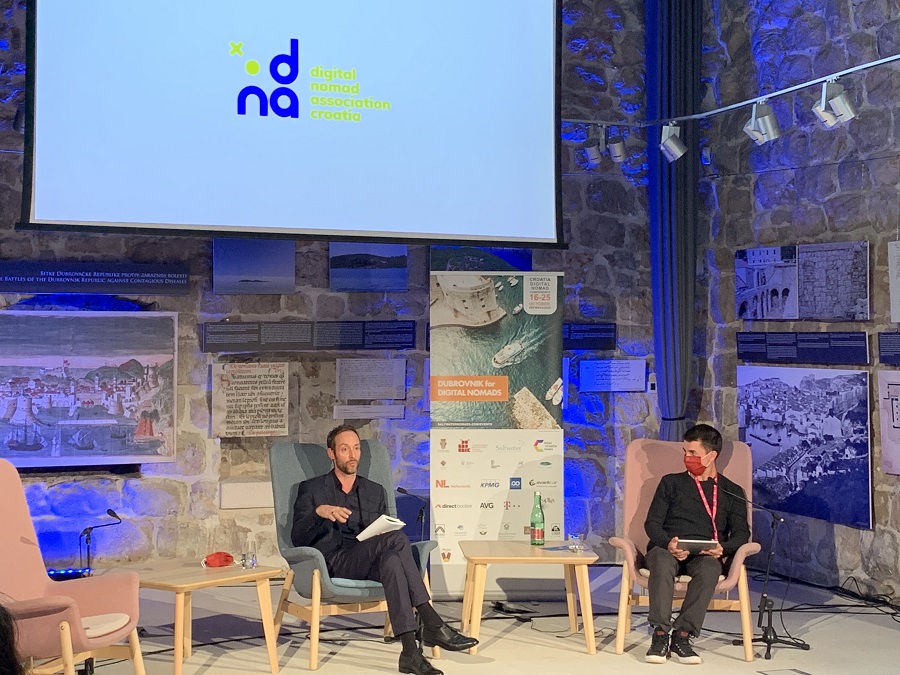3 Female Returnees Bring Digital Nomad Work, Play & Living to Diocletian's Palace
November 23, 2020 - What if remote workers could combine the world of digital nomad work, play and living in one place - a UNESCO World Heritage Site and retirement home of a Roman Emperor, perhaps? Well now you can thanks to three enterprising female entrepreneurs in Split.
Having been brought up a Brit, it is hard to admit I have a hero who is Australian. Actually, not one, but three - all inspiring ladies from the Croatian diaspora who moved to Croatia to try their luck in the land of their ancestors.
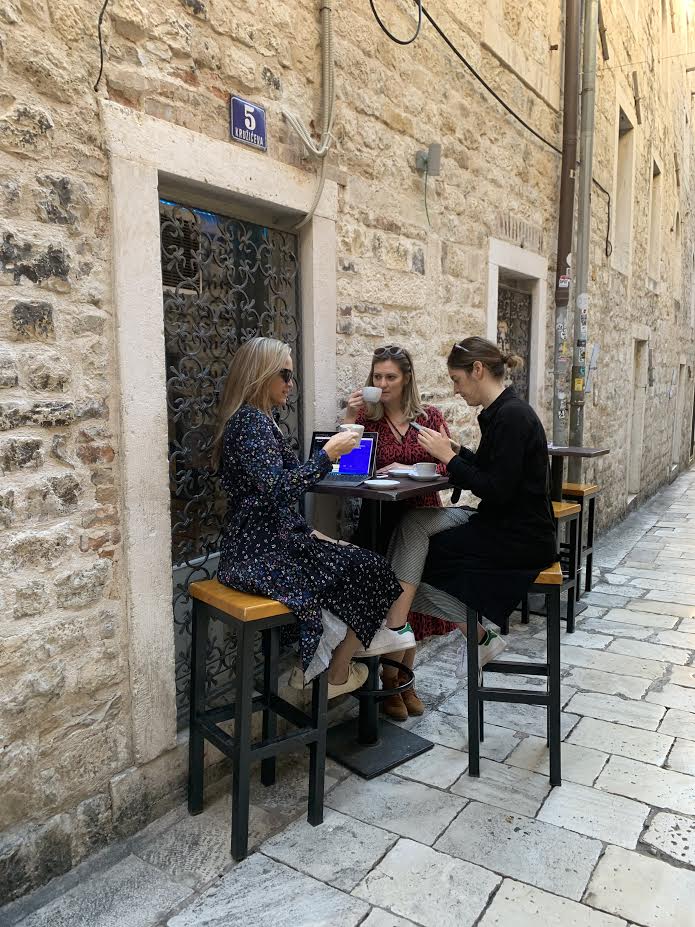
And all three have succeeded, despite the many obstacles thrown in their way. It has been a pleasure to cheer from the sidelines as I have charted their path to success. And now a new chapter, as my three heroes have teamed up together for the first time to offer the option of digital nomad work, play and living in one exciting concept - located in the heart of a UNESCO World Heritage Site and former retirement home of a Roman Emperor no less - Diocletian's Palace in Split.
There is a lot of buzz and talk about digital nomads in Croatia at the moment. A combination of the initiative to make Croatia only the sixth country in the world to offer such a visa, as well as the realisation that Croatia's current accidental tourism 'strategy' needs an urgent reset, has had many tourism providers looking to cater to this new digital nomad tourism opportunity.
Most are completely missing the point.
It has been mildly amusing to see the number of businesses in Croatia who are suddenly advertising themselves as digital nomad friendly, as though a bed and reasonable WiFi is all that is required. While both are a prerequisite, there is a little more to it than that. Two of the major planks of a successful digital nomad tourism offer, at least in my humble opinion, are lifestyle and community. Travelling the world is a rewarding experience, but it can also be a lonely one. If you are working remotely and you can find a place to live, work and play all in one, then that is a lot more appealing.
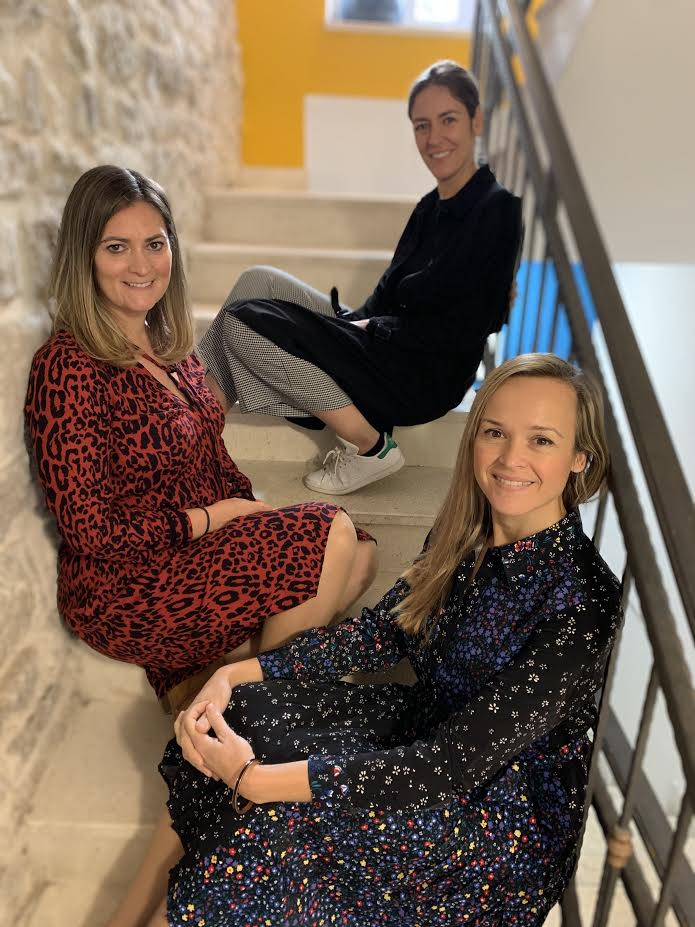
Enter my three Australian heroes - Tanja, Maria and Korana - all of whom will be familiar to longterm readers of TCN.
I have been spending quite a bit of time on and offline with Tanja Polegubic from Saltwater Nomads this year. Founder of a co-working space of the same name in Split, Tanja has put a lot more thought than most into the potential (and the pitfalls) of Croatia embarking on the digital nomad route (and for those interested, 10 Ways Croatia Will Be At The Forefront of Countries with a Digital Nomad Visa is a worthy read). Tanja also organised the first Digital Nomad conference in Croatia last month, is a founder of the Digital Nomad Association, and we will shortly be announcing her latest cool event, a digital nomad boot camp to coincide with Advent in Zagreb.
Maria and Korana are lifelong friends who came to Split as naive 22-year-olds who thought they spoke fluent Croatian almost 20 years ago. As some of the few foreigners who have been working here as long as I have, it is always fun to catch up with them and have a laugh about the good old days. Having famously flooded the main square of Diocletian's Palace on the first day of opening their first business, a fast food joint, they have gone from strength to strength with a combination of determination, vision, charm, sound decision-making and 10 lifetimes of hard work. The first legally registered hostel started the empire which then blossomed into three hostels, one of the most popular hangouts in Diocletian's Palace (Charlie's Bar), and two excellent restaurants, Zinfandel and Brasserie on 7. Life was good for the owners of Zeven Gastronomy Group and Split Hostel Group.
And then came corona.
Not for the first time in their Croatian odyssey, it was time for a rethink, this time over a glass of wine with Tanja. What if all the assets and components of both businesses could be realigned for the greater good? A co-working business, hostels, a bar and two restaurants. What kind of package could that be if it was all made available to customers to work, live and play?
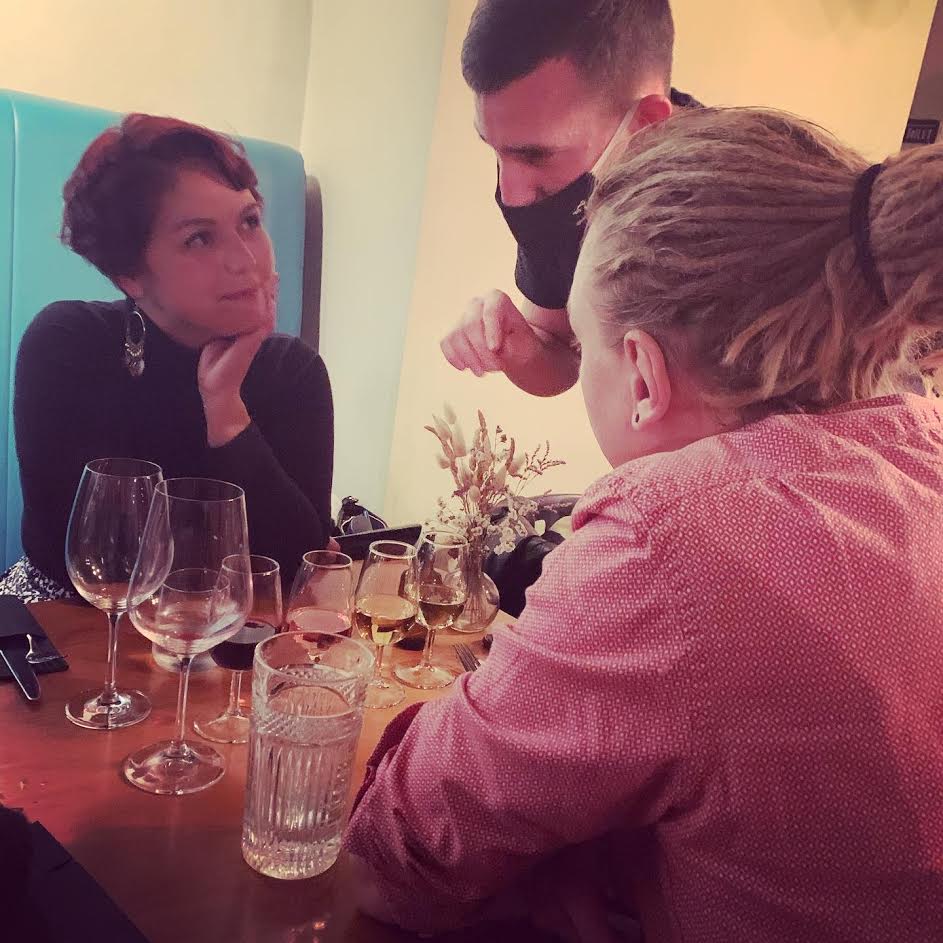
And that is exactly what these three heroes have done. As Tanja explained:
Around mid-September, I was contacted by nomads looking for co-living options. There weren’t any in Split. We already find long-stay accommodation options, so a hostel - especially as they had been hit so hard by Covid19, was a logical option. I contacted Korana, and it started very quickly.
All this was happening while the preparations for Dubrovnik Digital Nomads was underway. Korana and Amanda - our Saltwater member who ran the bar at our Beach Office Bacvice Bacvice this summer.
In our first week of opening, our two top floor “penthouse” private offices (Bill and Ted) filled up! Couples from US/Canada and UK/USA. Since then, we’ve had quite a few people trial, and some join.
Coworking isn’t an easy business - it’s very transient. It is more about the community activity and events. Plus some good ole fashioned Dalmatian ‘pomalo’... things happen slowly here. Which is fine; we’re in this for the long haul. Especially as it’s very fun to run.
So what does the digital nomad work, play and living combination look like?
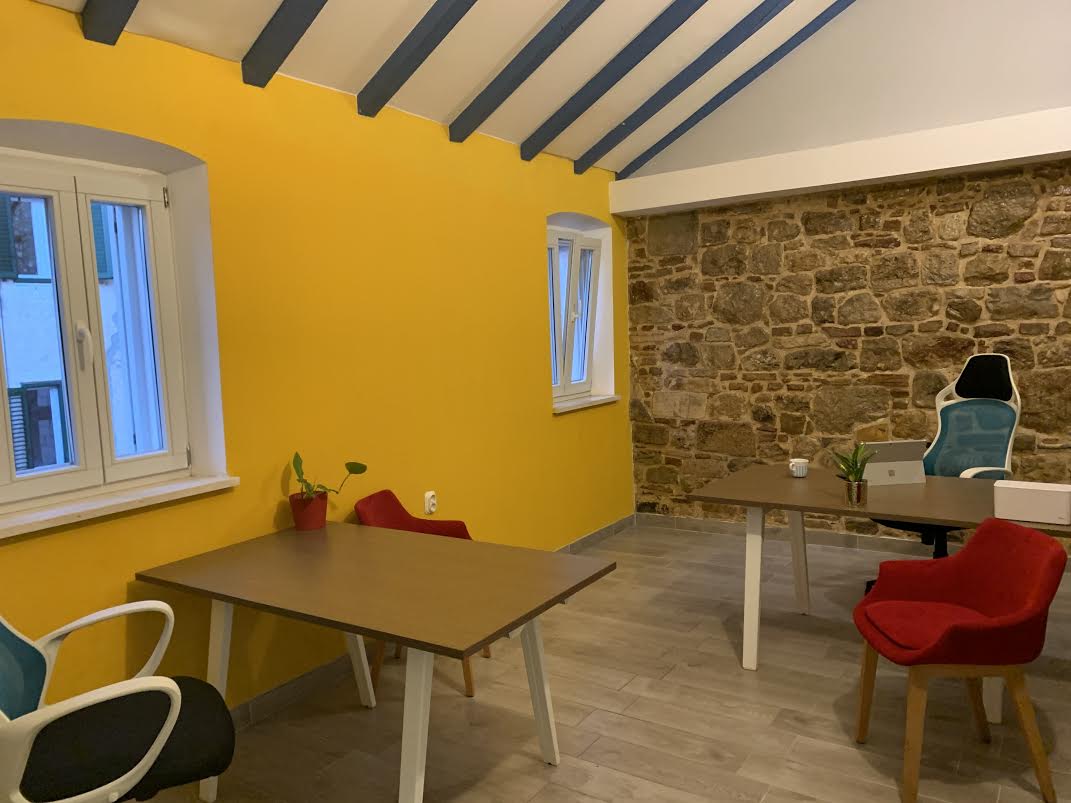
Some of the stone wall hostel rooms have been converted into shared workspaces, private offices, meeting rooms - already fitted out with showers, communal areas and kitchen. And the authentic stone walls as your Zoom background come as standard.
One of the hostels remains as a coliving option - starting at 250 euro month to stay in the Centre of Old Town Split in Diocletian’s Palace.
And what better location for your new office. Not only in a World Heritage Site, but also above the team's Charlie's Bar, offering a steady supply of coffee, cocktails and beer on tap with a nomad discount.
Feeling peckish or looking for a change of workplace scene? Both Zinfandel and Brasserie on 7 are available with discounted prices for registered Saltwater and Split Hostels customers. And with B7's fabulous waterfront location at the centre of Split's famous riva, there are few better more beautiful locations for a temporary office.
The sense of community is crucial to a happy experience, and all three of these fabulous ladies have long experience in producing outstanding customer service, and so it is no surprise that this new nomad offer comes with a little fun in addition to the basic services.
The weekly Nomad Table combines food, wine, entertainment and great company. Education of Croatian wines are already proving popular, a Zinfandel speciality, and some ice-breaking games at the events so far have helped bring people together. The first, held on the inauspicious date of Friday 13, 2020 (what could possibly go wrong?) included an icebreaker game lining up cards with guest and staff point of origin and distance to Split. The furthest away was Hamilton, NZ - although this was strongly contested by Dunedin and Taupo hometowners!
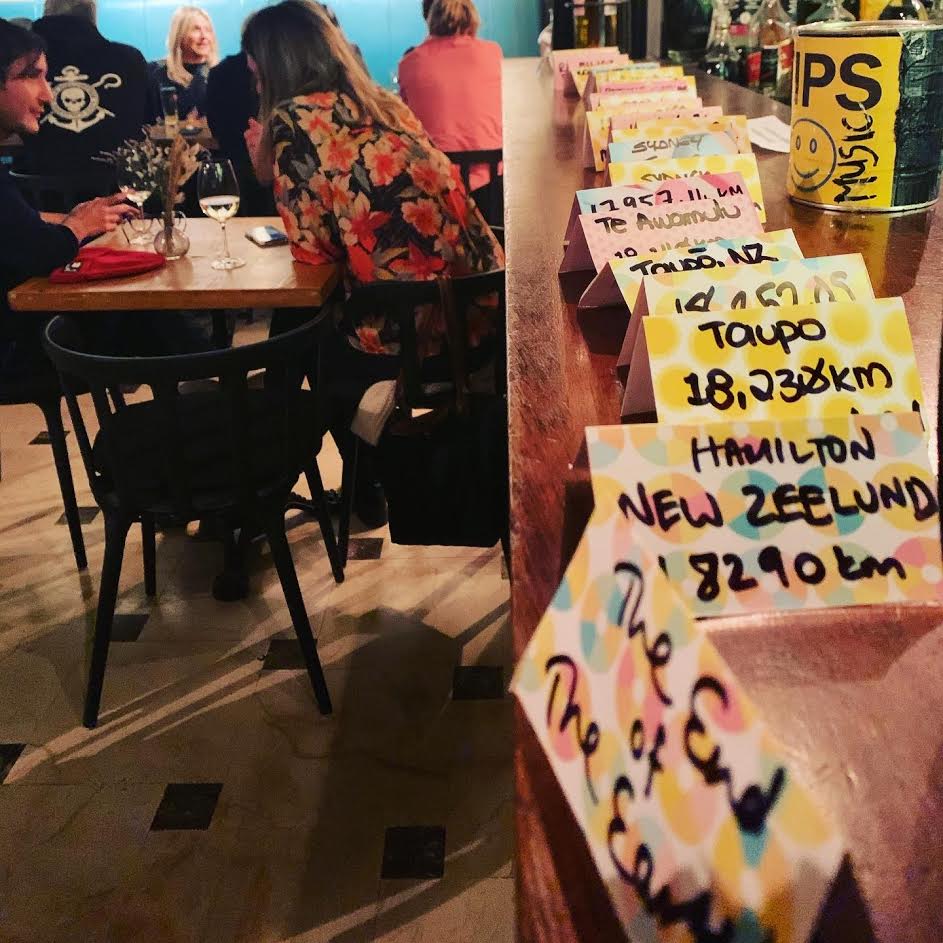
Last week, the Crljenak, Plavac Mali and Posip was washed down with COVID bingo - “68 late for your Tinder Date, 83 Gluten Free and 88 Wills and Kate”. It’s very 2020.
The next event is on Friday 27th - a wine flight and group dinner, with another icebreaker game to be decided. And every Friday and Saturday has live music.
Word of mouth seems to be moving quicker than even the most dedicated blogger. Several Zagreb nomads are heading south for a taste of a Mediterranean winter. So far there have been nomads from Paraguay, USA, UK, Canada, Chile, Australia, New Zealand, France, Germany, Hong Kong, Korea, and a couple from Poland who are sharing their newly adopted home with people back home on Ewa’s Let's Split blog - documenting their journey from Poland to their new home in Croatia.
Did I mention customer service? New vegan options are being added to the menu, as three of the early members are vegans.
Fabulous stuff, and I look forward to seeing how this initiative evolves. With the connections and creative minds of the founding mothers, the prospects are enticing indeed.
The potential of digital nomad tourism in Croatia - with or without the visa - is immense. In order to take advantage properly, it will require a little more than a bed and a good WiFi connection. Good luck to my three heroes - I have been saying for a while that Croatia needs to move from Croatia, Full of Life (whatever that means) to Croatia, Your Safe, Authentic, Lifestyle destination. The Zeven Hospitality Group/Split Hostel Group/Saltwater partnership does exactly that.
For more information, you can contact the team via the Saltwater website.
For the latest digital nomad news, follow the dedicated TCN section.
Croatia Through the Eyes of a Digital Nomad: Social Gathering Alert, also Known as Olive Picking
November 12, 2020 - Continuing our look at the digital nomad lifestyle in Croatia, the month of November means only one thing - to the fields for olive picking.
In the spirit of age-old Dalmatian tradition, many families offer a home-cooked meal (probably Peka) and plenty of vino in exchange for some manual labor in their olive grove.
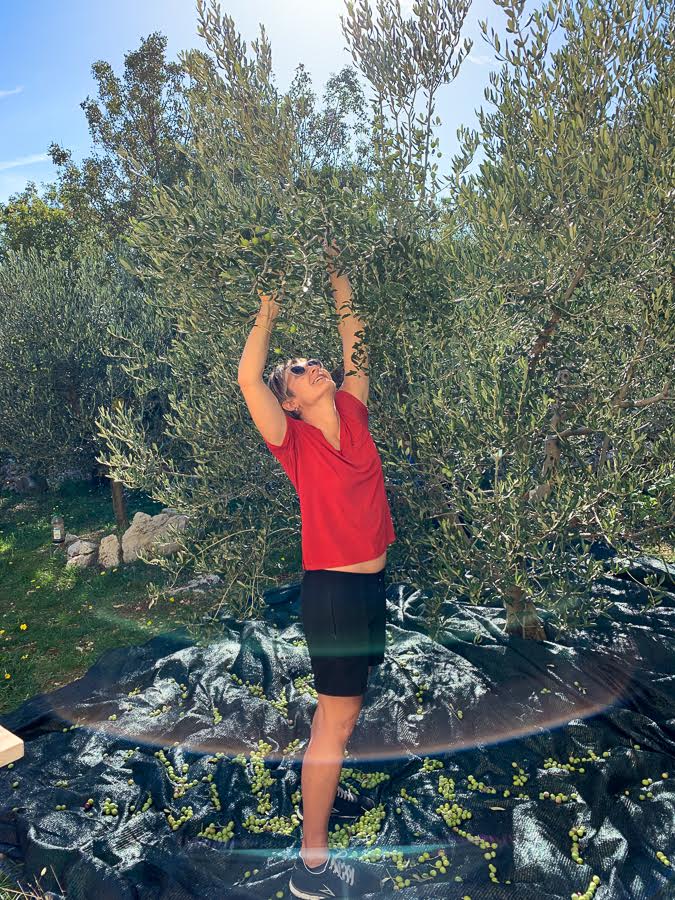
(Working beneath the tree, you have to be careful not to crush the fresh-picked olives on the ground near your feet.)
It’s pickin’ time! Growing up in New Jersey, I know a thing or two about harvesting, mostly the anticipation of delicious, fresh food right off the vine. The state’s motto, after all, is “The Garden State” and it harvests over 100 different types of fruits and vegetables. The official state food is the Jersey tomato. I don’t really like tomatoes but man, ours are super fresh, tender, and seriously good! And the little cherry tomatoes are downright addictive.
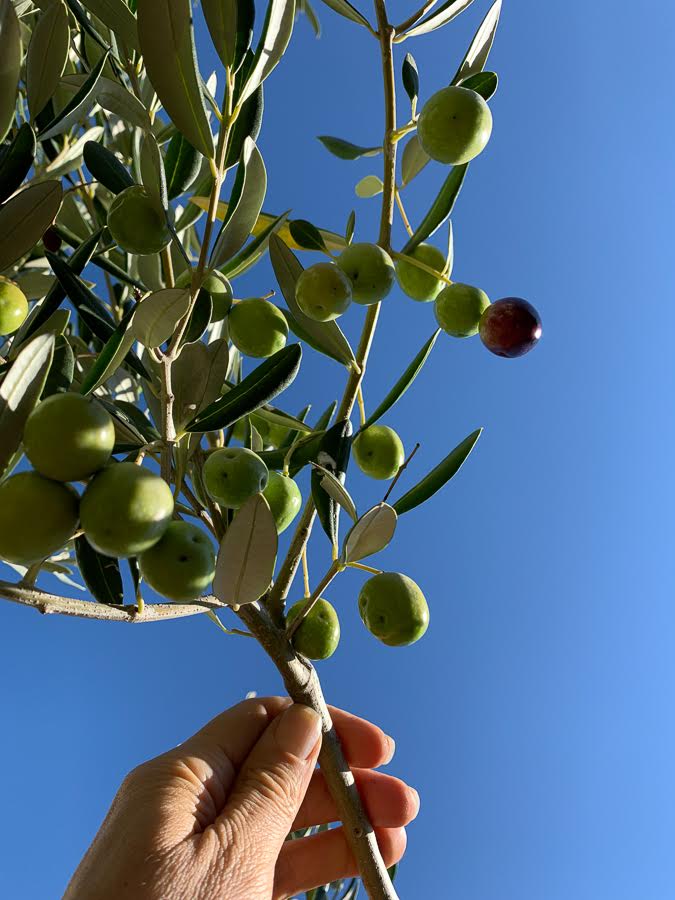
(Olive oil’s flavor depends on the color and ripeness of the olives when picked.)
Fond memories
Some of my fondest childhood memories involve picking fruit in the field with my family. My grandfather loved strawberries and come June we’d drive to the local pick-your-own farm. There’s nothing quite like getting your hands dirty in the strawberry patch on a sunny day and sneaking samples, one after another. Who could resist those juicy ripe jewels? Those were special times—talking, laughing, and gathering food we’d eat together. As soon as we got back home my mother pulled out her strawberry shortcake recipe and got to work. With the smell of shortcake baking in the oven, she’d gently mash the berries. When it was finally assembled, we all sat at the kitchen table and enjoyed a special homemade treat. Warm cake, like a sweet biscuit, layered and topped with a juicy berry mash was spectacular. Our vine-to-table experience lasted only a few hours, but it was some of the best bonding time a kid could wish for.

(A small hand rake is the only tool used on this family farm.)
Croatian harvest
A Croatian friend mentioned picking olives at her family grove and I jumped at the chance to help. Spending time with her and the family and enjoying a fun day outside had my name written all over it. I was also keen to experience this harvest tradition and learn more about Croatia’s olive oil—the liquid gold that’s key to Mediterranean cuisine.
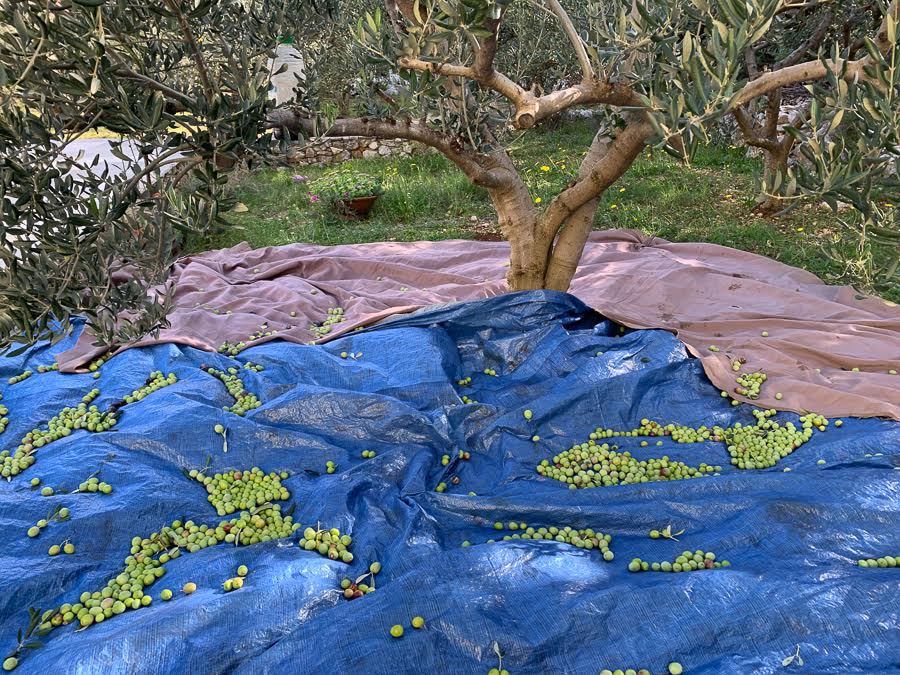
(Placing tarps and gathering up the olives are other jobs on picking day.)
They picked me up in the morning and we drove to the family house in Trogir. Dad laid tarps around the base of the trees, like bibs, while Mom warned me about the sharp leaves. We started in the front yard and picked for several hours until lunch time. It was all done by hand, except for a small hand rake I used to reach the olives in the higher branches. Occasionally one of us would climb a tree and extend our bodies to the point of teetering just to get that patch of olives way up there. We shared stories and laughed.

(A fresh picked basket of olives, cleaned from stems and leaves, is ready to rest in a saltwater bath before going to the mill.)
In the background, slabs of beef were being grilled and green beans, potatoes, and other food was being prepared. By the time we sat down to eat, including plenty of local wine, we had conquered the front yard. Conversation around the table was filled with warmth and happiness.
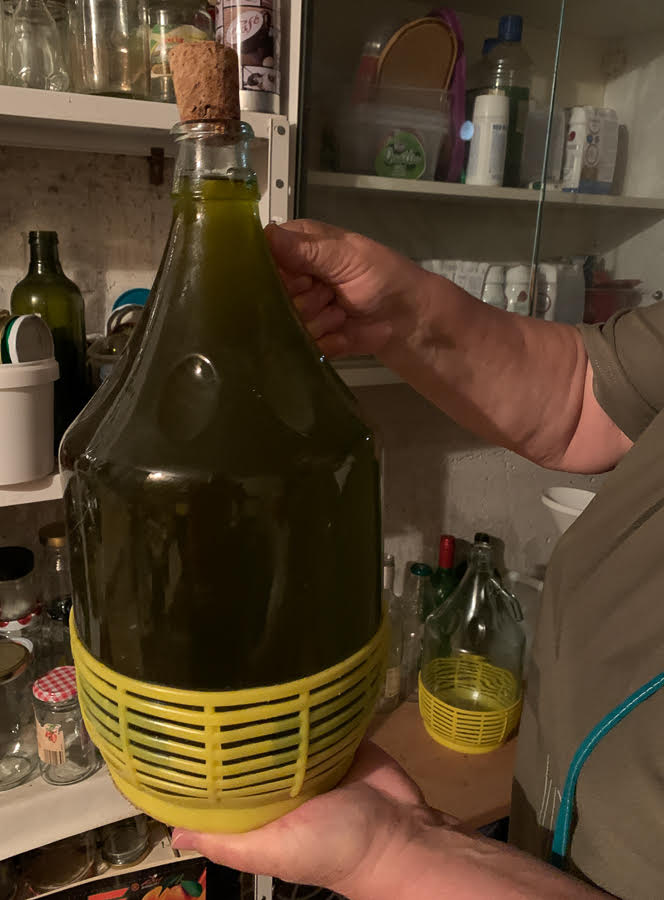
(Hand-crafted olive oil is typically stored in large bottles and kept in dark, dry places to retain freshness.)
With full bellies we went back to the field. I was eager to keep going and my goal was to finish as many trees as possible so the family would be ready for their appointment at the mill. Once you start harvesting the clock is ticking. You have to utilize the olives within three days of picking; if they sit any longer, they’ll oxidize and “sour.” We called it a day at 5pm, only because the sun was setting. We’d gotten through nearly half of the grove and glasses were raised to toast our strong effort.
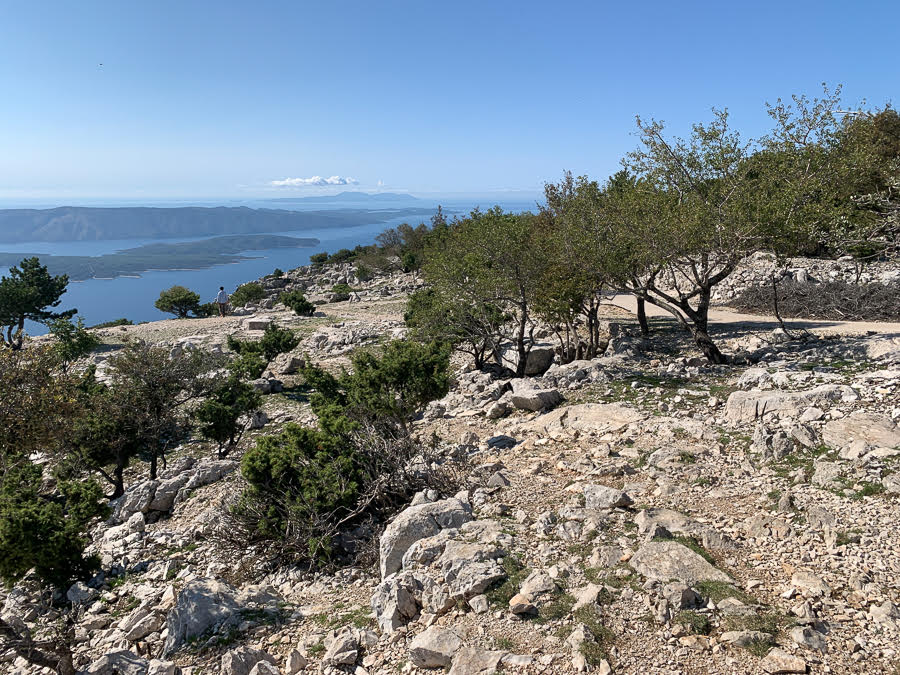
(The olive tree is one of the heartiest trees on earth. It’s resistant to Croatia’s strong Bura and Jugo winds and temperature differences and it thrives in rocky terrain and salty atmosphere. An olive tree can live over one thousand years and occasionally bear fruit for centuries.)
Picking olive trees
Harvesting runs from August through November depending on the region, variety, and desired ripeness. All olives start out green and then gradually become rosy and finally black. Depending on the type of oil you’re making, a combination of all three may be used for pressing.
First, determine the flavor you desire. The earlier you harvest, the more bitter the taste. As olives mature, their flavor mellows. Larger olives have more oil but the content drops as the olives ripen. Green olives have a longer shelf life but tend to be bitter and take several months to mellow. If picking olives for oil, pick those with a light, yellow color. If picking olives to eat, pick green olives when they are mature but before they change color.
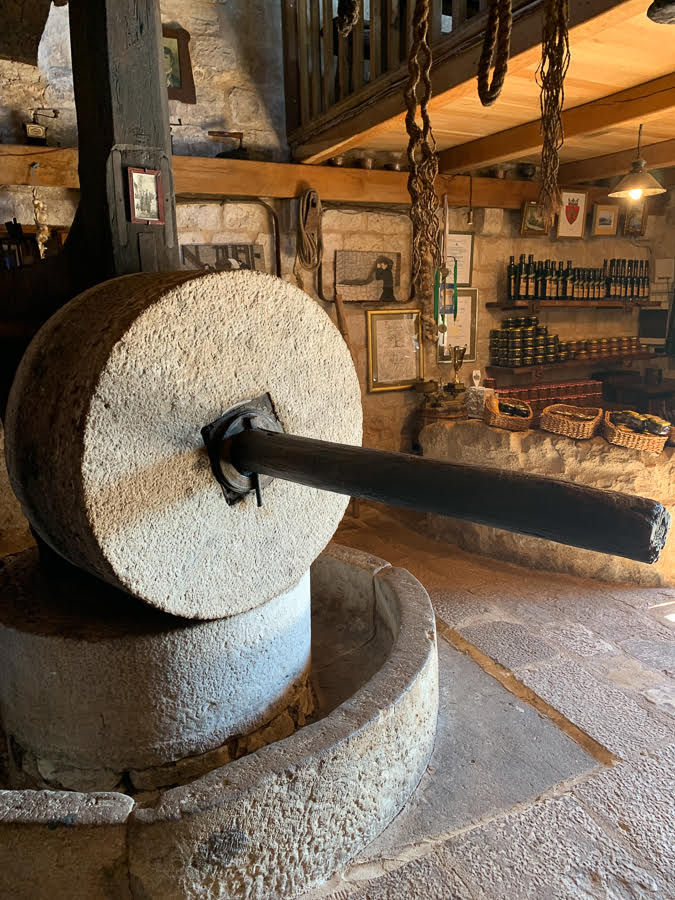
(An old stone mill at the Olive Oil Museum on Brač is a reminder of the hard, manual labor once used in production.)
The Olive Oil Museum
Earlier in the summer I learned about the history of olive oil production on the island of Brač at the Olive Oil Museum. Located in Škrip, the oldest village on Brač, this “oilery” was founded in 1864 and it processed olive oil for 100 years. In 1963 the mill closed shop when new technologies were introduced, namely the hydraulic press. It simply couldn’t keep up with modernization—the yields or the cost of new machinery.
The museum features the original old stone mill, a wooden spindle for pressing, and plenty of traditional tools decorating every inch of the walls and the ceiling, including funny looking goat skin bags that were historically used to transport the oil. Donkeys were strategic partners throughout the fully manual process and it’s an understatement to call olive oil production labor-intensive. To underscore the point, consider that you need 18 pounds of olives to yield one pound of oil.
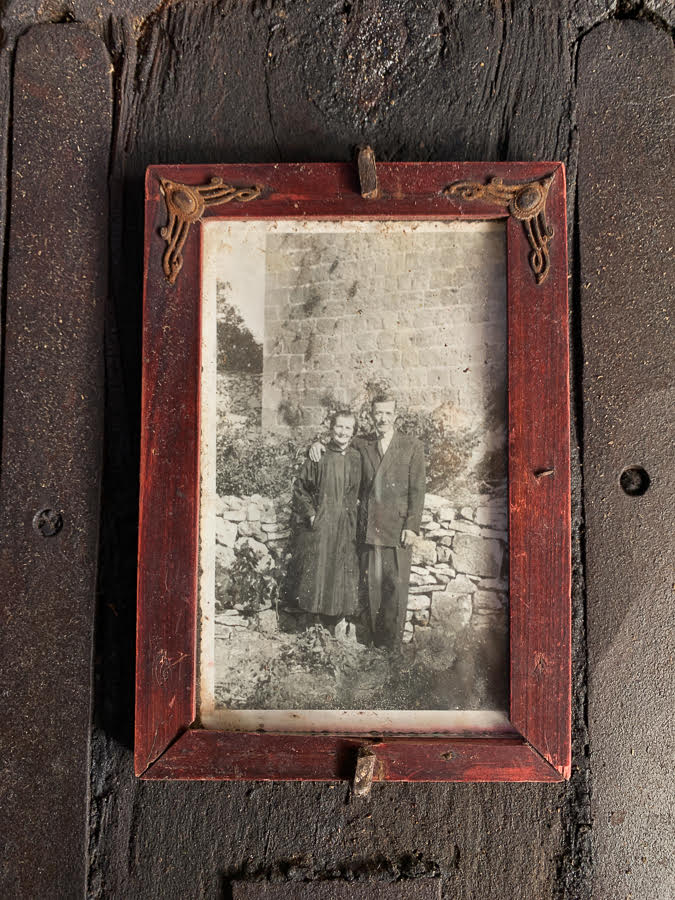
(A family photo from the early 19th century is affixed to the old stone mill in homage to generations of the family business.)
A very brief history of olive oil
Greece is credited as the first place to produce olive oil, around 2500 BCE when it was used as lamp fuel and in religious ceremonies in the Mediterranean. The oil appeared in cooking sometime during the 4th century BCE and in the Middle Ages, olive oil became an ingredient in soap and beauty treatments in Spain and France.
After all those centuries, it wasn’t until the 1960s that flavor became important. The introduction of the refined press transformed olive oil’s commodity status from a frying and cooking product into a delicious kitchen staple. Today we know it as a higher-end oil and a specialty good revered for its health and nutrition benefits.
In the 1990s, the International Olive Oil Council promoted olive oil as a key ingredient in the Mediterranean diet. In 2013, the Mediterranean diet was selected for the UNESCO List of the Intangible Cultural Heritage of Humanity. Interestingly, only seven countries endorsed the nomination and Croatia was one of them.
Taste
So how do you know what’s good? Place a taste of oil, not too much, under your tongue and inhale five or six times through your mouth. You should get a slight grassy taste and a pepperiness at the back of your mouth. Do you taste figs, lemons, or something fruity? If so, it’s fresh. The way to judge olive oil is on smell and taste, not color.
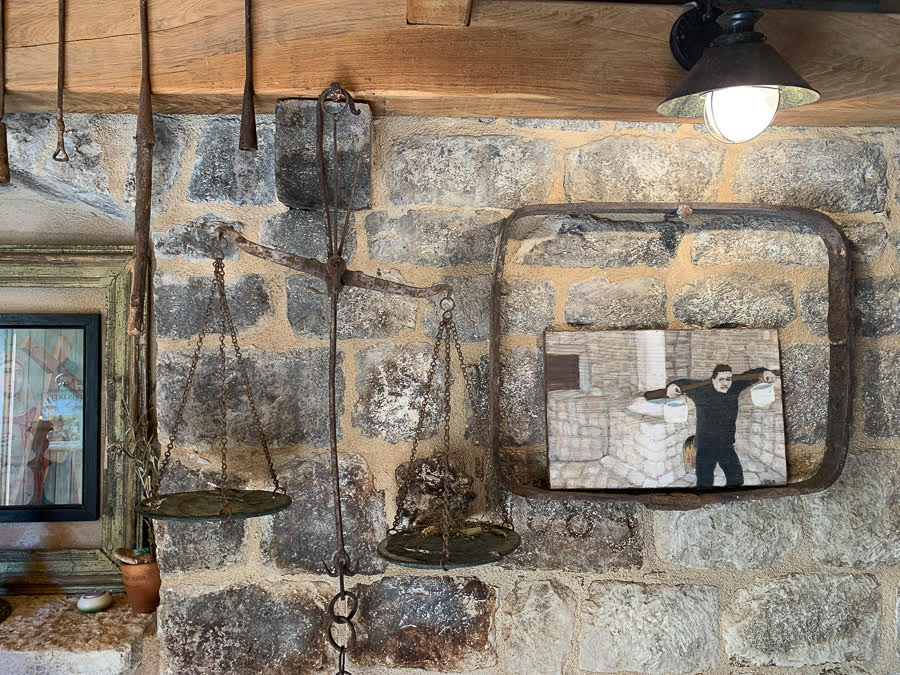
(The Olive Oil Museum displays paintings by academic painter Hana-Marta Jurčević Bulić that depict an earlier harvesting lifestyle.)
A superior product stays in Croatia
I’ve asked why, with so many trees and a superior quality product, Croatia doesn’t export its olive oil? One answer is that small batches are too much work and can’t bring a good enough return. The vast majority of Croatian producers are small farmers producing enough oil for their families and maybe some gifts. Another answer is probably closer to the truth—property here is chopped up so small that there’s no real opportunity for anyone to go big. I was told that in fact, Croatia imports olive oil to keep up with demand. That’s crazy.
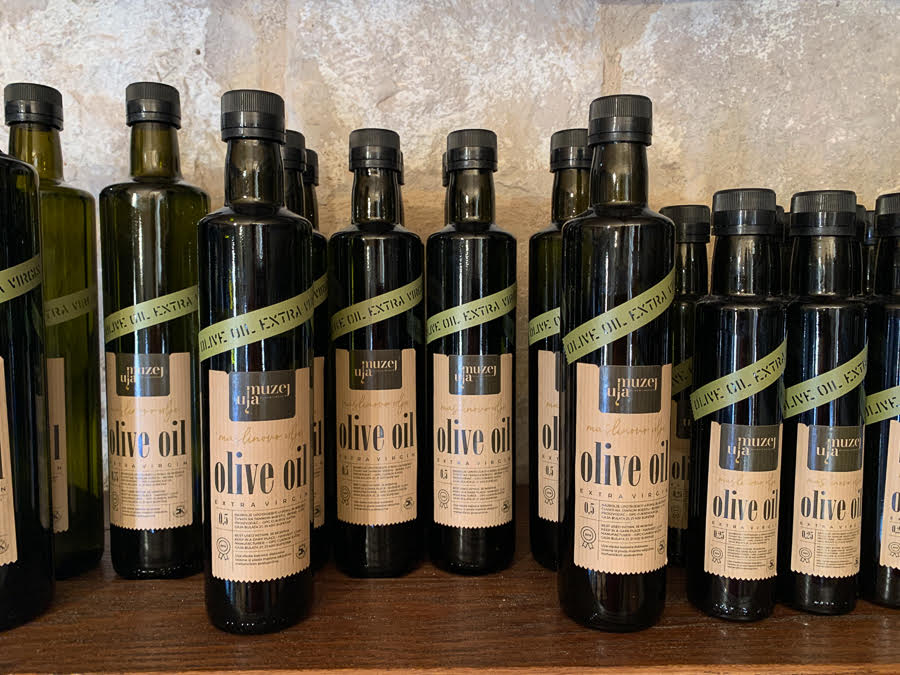
(Olive oil is a core component of the Mediterranean diet and it’s highly valued for its beneficial health qualities. The two most popular types are extra virgin olive oil (EVOO) and ordinary virgin olive oil.)
Nobody gets paid
There’s a lot to be said for Dalmatia’s cultural heritage and olive oil is a centuries-old foundation of life. The history of olive oil shows that people work hard to maintain their traditions as part of their ethnic identity and more recently to support their health and well-being.
Although modern machines and processes have galvanized the olive oil business at large, most Croatians are local farmers for whom the production of oil is a labor of love. It brings feelings of bonhomie and vitality. The reward is the joy of being in nature and a part of the magnificent countryside, having some fun, and sharing a lovely bonding experience with friends and family.
Learn more at TCN’s Digital Nomads channel.
Story and photographs ©2020, Cyndie Burkhardt. www.photo-diaries.com/
For more of Cyndie's experiences, check out her Croatia Through the Eyes of a Digital Nomad column.
Croatia is One Step Closer to Introducing Digital Nomad Visa
November 11, 2020 – Last week, the Croatian government took the first step to introducing a digital nomad visa. In his statement, Prime Minister Andrej Plenković pointed out that the Law on Foreigners, under which the digital nomad visa is regulated, is an important law.
As Lider Media / Nikolina Oršulić reports, the first concrete regulatory steps have been taken to legalize the residence and work of digital nomads in Croatia. Namely, on Thursday, November 5, 2020, at the Government session, the final proposal of the Law on Foreigners was adopted, which will be sent to the Croatian Parliament.
"I think this is an important law. We are among the first countries to legally regulate the issue of digital nomads, and this will be accompanied by appropriate changes to the law in the tax domain, as well as in the health insurance domain," said Prime Minister Andrej Plenković, announcing further legislative steps.
The idea of launching digital nomad visas was first presented in Croatia by Dutch entrepreneur Jan de Jong, who has been building new business opportunities in Croatia for more than a decade.
"I can say that I am satisfied with the pace at which we are working to bring the legislative package needed to attract digital nomads to Croatia. We are currently making great steps forward in answering health insurance questions. With the Prime Minister's statement, we have an official obligation from the highest political level to continue to make extraordinary efforts to adapt the laws regarding taxation and health insurance. I am happy that Croatia will become the leading country in the world in attracting digital nomads," said the entrepreneur for Lider Media.
The legislative story has heated up, so the initiator of introducing a digital nomad visa is already working on the next step – the establishment of a kind of central point to support digital nomads.
"Since we are going in the right direction, I am working on establishing the Croatian Association for Digital Nomads (Digital Nomad Association Croatia - DNA Croatia) whose mission will be to connect digital nomads in Croatia and support them. We are currently in the process of founding this association," said de Jong, who is entering the project with Tanja Polegubić, a returnee from Australia who runs Saltwater Nomads - remote work and lifestyle services for digital nomads in Split, and Karmela Tancabel, a member of the Ilok Cellars (Iločki podrumi) Marketing and Export Board.
The plan is to complete the legislative part to introduce a digital nomad visa by the end of the year, and visas should be available in the first quarter of 2021. In addition to the legal regulation of the status of digital nomads, the draft of the Law on Foreigners brings some other changes.
"The most important novelty is prescribing a new model of employment of foreigners, according to which the employer must first request the implementation of the labor market test from the Employment Bureau to find labor on the domestic market. If there are no unemployed in Croatia, then a request is sent to the Ministry of the Interior seeking an opinion from the Croatian Employment Service. Exceptions to this test are for deficit professions that are usually used during the season," said Interior Minister Davor Božinović at the Government session.
In the draft of the Law on Foreigners, a digital nomad is defined as a third-country national who is employed or performs business through communication technology for a company or own company that is not registered in the Republic of Croatia and does not perform work or provide services to employers in the Republic of Croatia.
For the latest about the digital nomad scene in Croatia, follow the dedicated TCN news section.
Croatia Through the Eyes of a Digital Nomad: Dubrovnik’s Lazareti Backstory Still Resonates
October 28, 2020 - Freelancers Week may be over, but digital nomads are still making connections with one another and with coworking spaces, including the historic Lazareti in Dubrovnik.
My first experience with European Freelancers Week (#EFWeek2020), which just wrapped up, was a whirlwind from beginning to end. I worked in three different coworking spaces, learned how to open and operate an obrt, and socialized with a group of fellow “remote” females. From all this networking, a new project landed on my plate and began the same week. Awesome! The most memorable experience though was working on a kick-off event—the Dubrovnik for Digital Nomads conference.
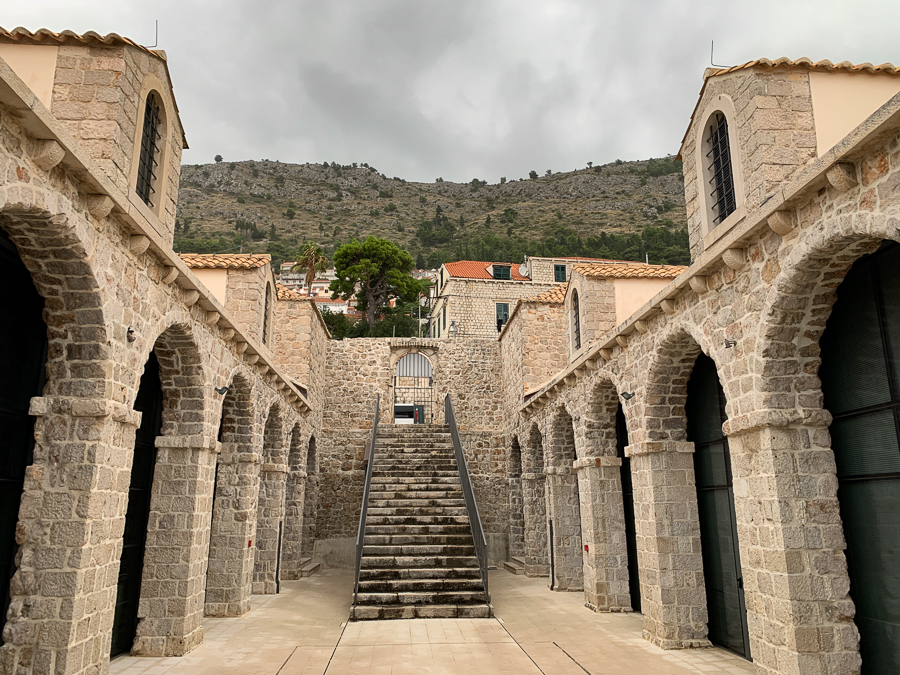
(When epidemics spread rampantly in the 14th and 15th centuries, the Dubrovnik Republic took strict measures to organize sanitary and public healthcare services throughout the region. It’s no coincidence that epidemics of infectious diseases erupted and the period was characterized by a boom in trade.)
Independent work and workspace
Freelancers Week, the parent of #EFWeek, is a celebration of independent professionals and coworking spaces. The conference delivered on both, as a salute to Croatia’s impending digital nomad visa and with an offer of free coworking for the week. The event and the coworking were located in a place of historic consequence—Dubrovnik’s famed Lazareti. Ths row of buildings on the city’s waterfront is notorious as a former quarantine site. Hello, pandemic?
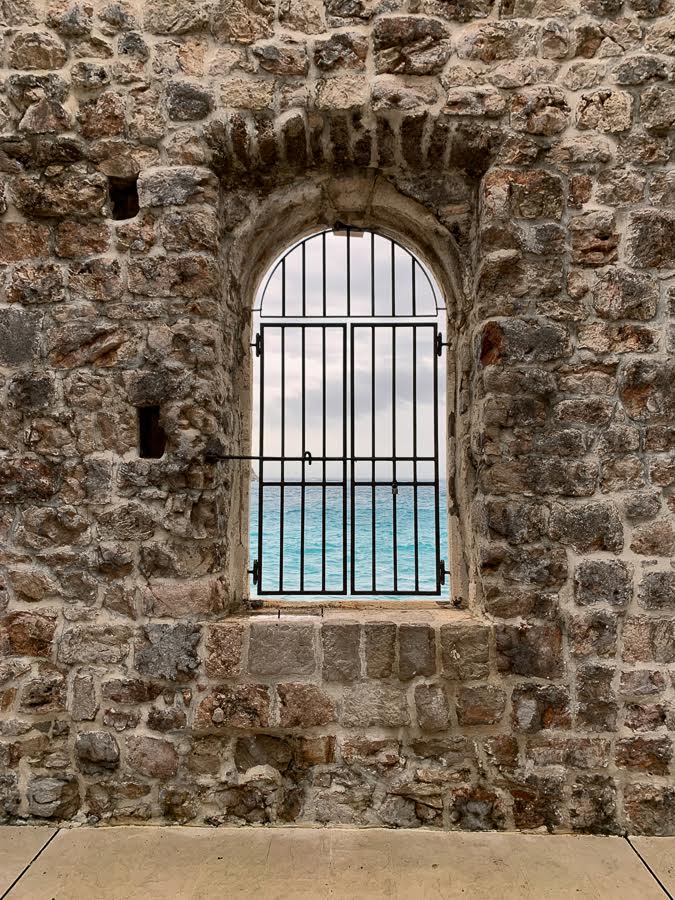
(Small windows in each courtyard were once doors where goods were unloaded from ships, directly into the lazaretto for holding.)
Quarantine origins
Poking around the buildings before the conference, I noticed an art exhibit on the walls. It was actually an illustrated account of the city’s quarantine origins. Dubrovnik was the first state in the world to institute an official quarantine system to protect its people against infectious diseases. “Our Lord God sent a terrible, unheard of judgment on the whole world…” The opening sentence of the prologue wasn’t exactly factual, but it got me wondering if the same God is in charge today, 600+ years after this story began. Don’t get me started…
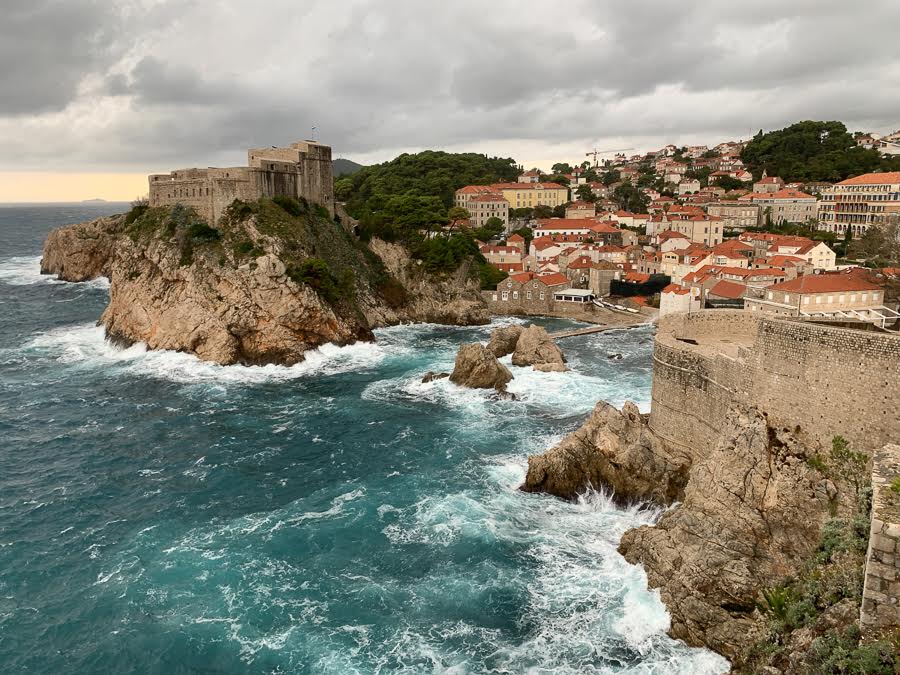
(People who received a prison sentence for violating quarantine restrictions were held at Lovrjenac Fortress, just outside Dubrovnik’s city walls and the Pile Gate.)
Epidemics across the Mediterranean
Raging plague and cholera epidemics were common from the 14th to 18th centuries across Europe and Asia. During these Middle Ages, Dubrovnik was a thriving maritime Republic that received people and goods from all over the world. In 1348, the Black Death plague decimated the population and killed roughly one-third of its citizens. Although infectious diseases were largely attributed to poor hygiene and poor nutrition, treatments were ineffective. It was thought that isolating people who were infected would stop the spread. Three decades later, in 1377, the Republic announced quarantine measures. They targeted all travelers, merchants, sailors, and goods arriving from "suspicious lands." An isolation period of 40-days was mandated and only when a person was proven healthy would they be allowed into the city.
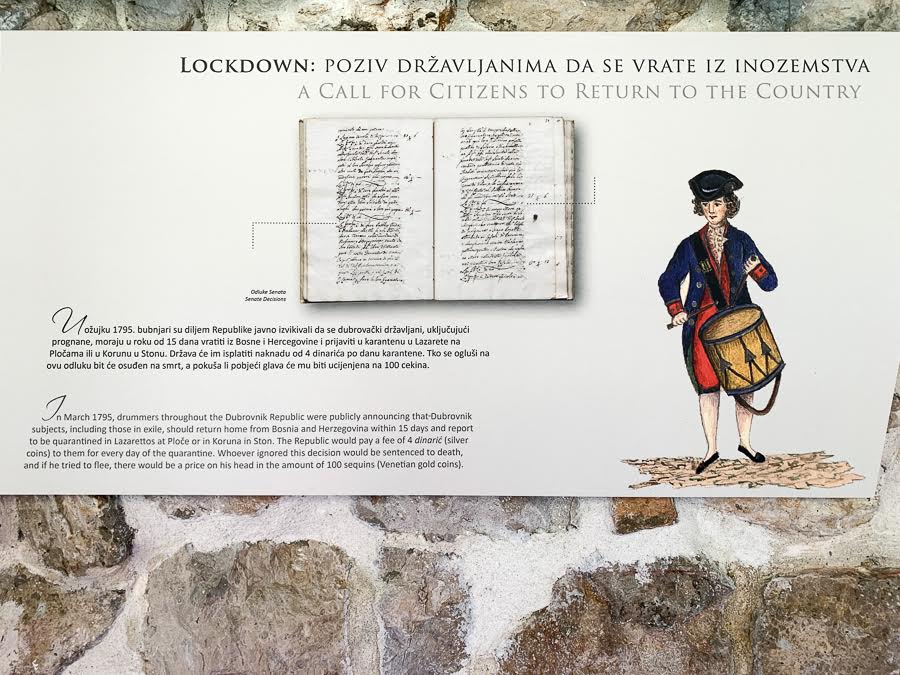
(In 1795, drummers in the Dubrovnik republic publicly announced that subjects in exile should return home and report to quarantine. The Republic would pay 4 dinarić (silver coins) for every day of quarantine. Whoever ignored this would be sentenced to death. If he tried to flee, a price would be put on his head of 100 sequins (Venetian gold coins).)
Lazarettos
The first lazarettos—quarantine stations, were built on remote, uninhabited islands just off the coast—Bobara, Cavtat, Mrkan, and Supetar. Over time, as others were constructed on different islands, including Lokrum, they became complex institutions. Scribes, guards, gravediggers, cleaners, priests, barbers, and healthcare officers were employed. The latter implemented quarantine restrictions and supervised compliance. Penalties for rule-breakers ranged from fines (100 ducats), to prison sentences, severe corporal punishment, and the threat of being shot. Seamen and their families received special dispensation. Since sailors typically had to return to sea immediately after their quarantine, wives and families were allowed to join them and quarantine together at the lazarettos.
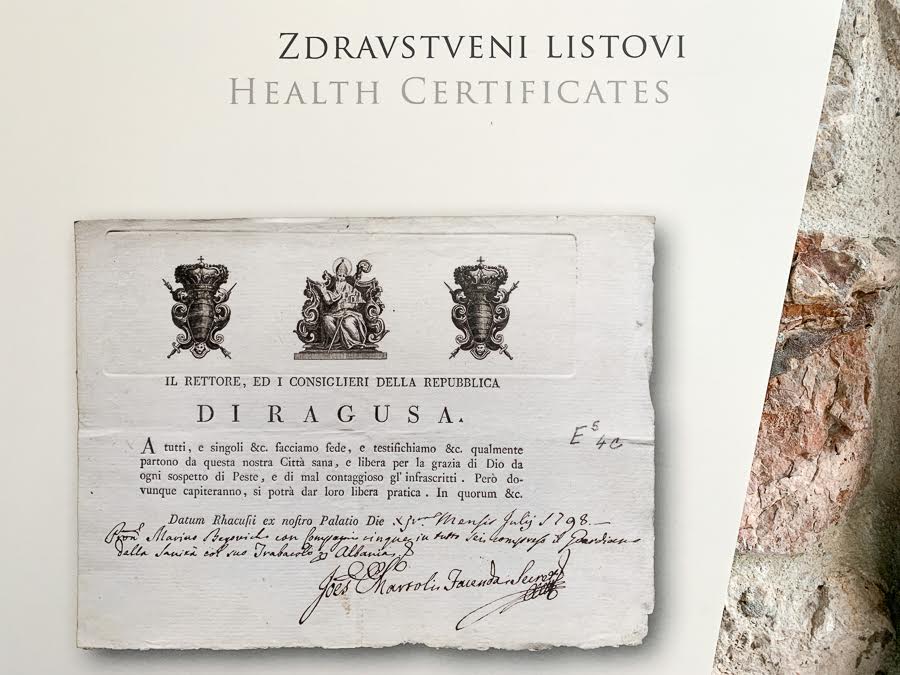
(In cooperation with the Health Office, the Republic issued health certificates to confirm that passengers in Dubrovnik had undergone the prescribed quarantine, or to state there was no infection in the area at the time of their travel.)
Safety measures
Reading about various safety measures—from hundreds of years ago mind you, they were surprisingly familiar. There was contact tracing, decontamination of food and animals, disinfection of ships and buildings, self-isolation, lockdown, border closure, contactless payment, distance rules, prohibition of public gatherings, and more. Contact tracing in the 1600s? Yep. People reported who they had contact with and also what they saw and heard about others. They snitched! Supposedly, it worked, and the plague of 1691 was snuffed out in three months. Contactless payment? Yes, again. Place your ducats on the counter and the person on the other side swept them into a drawer with a stick.
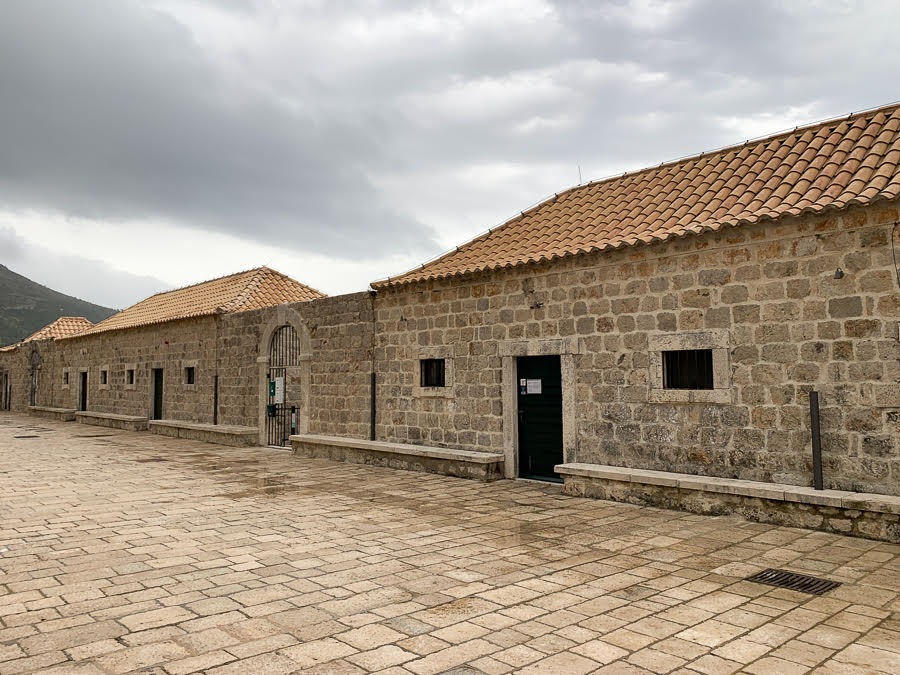
(Buildings along the upper courtyard of the lazaretto were once holding facilities for travelers to quarantine before embarking. Today they house various businesses and artistic ventures.)
Lazareti
The Lazareti, located near the Ploče Gate, was completed in 1647. Its location is significant—situated next to Dubrovnik’s old port and the city’s main entry point. As my feet walked through this multi-story lazaretto, consisting of eight buildings and five interconnecting courtyards, I noticed the architecture that once sheltered people, goods, and caravans from afar. From the shared, upper courtyard at street level, large staircases lead to the individual, lower courtyards at sea level. From the top of each staircase you get an expansive view of the sea, the city walls, and the old town. Peering down, a single, barred window in each courtyard gives you a sweet view of the water. This creates a neat “picture in picture” visual effect yet, standing next to the window there’s an immediate awareness of being behind bars. You’re on the inside looking out.
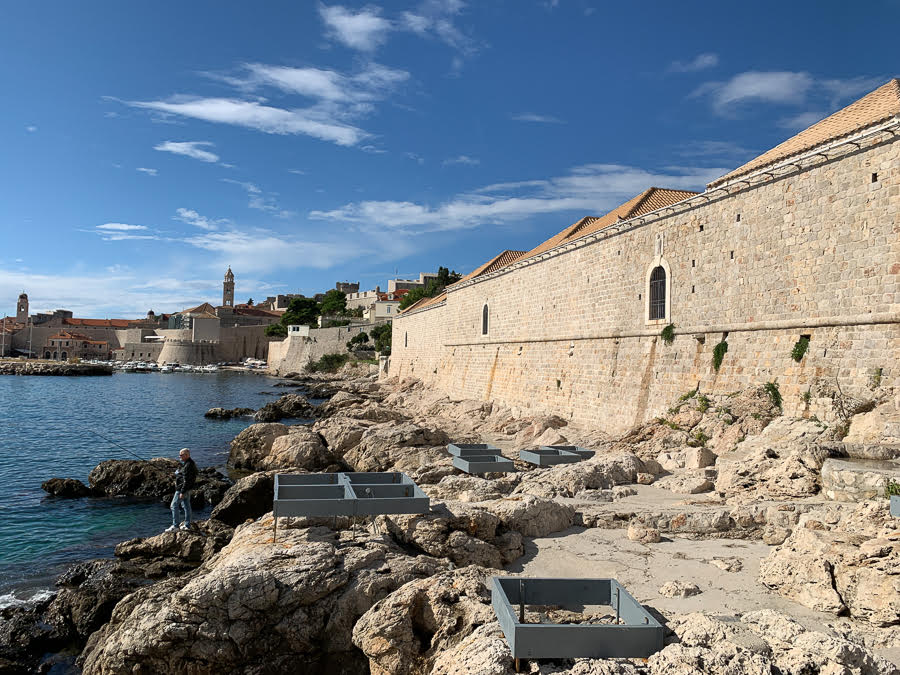
(The lazarettos, consisting of eight buildings and five courtyards, were renovated in 1623 from the sea side in order to enable the landing of large boats. The complex included warehouses for goods and livestock and lodgings for the extended stay of merchants and travelers in isolation.)
Creative Quarter
Physically being in a place whose historic narrative of plagues parallels our current situation with covid-19 in many ways, gave me a surreal feeling of connection. It was a sense of “we’ve been here before, things will get better, I’m not alone.” It’s clever marketing to host a public event and a coworking space in a former isolation facility—during a pandemic no less! As a remote worker, I’m isolated every day at my home “office,” aka my kitchen table. This past week was a breath of fresh air, quite literally, at the Lazareti. I’m glad for European Freelancers Week and the opportunity to get new perspective.
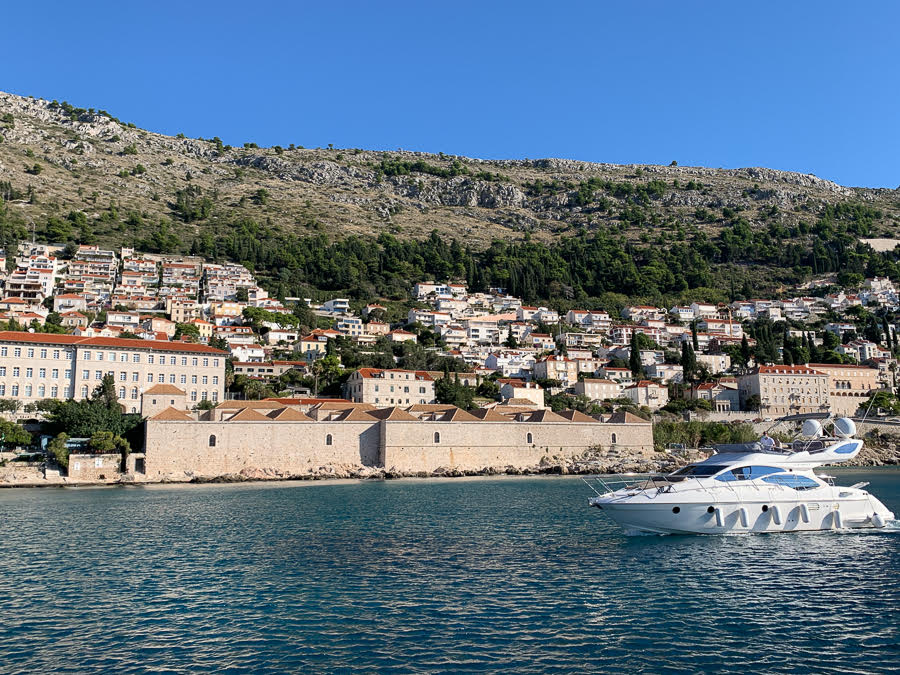
(In the 17th century, Dubrovnik was the largest merchant transit center on the Adriatic and the lazarettos were one of the best organized quarantines in the Mediterranean.)
Story and photographs ©2020, Cyndie Burkhardt. www.photo-diaries.com.
You can follow the latest from Cyndie's column, Croatia Through the Eyes of a Digital Nomad here.
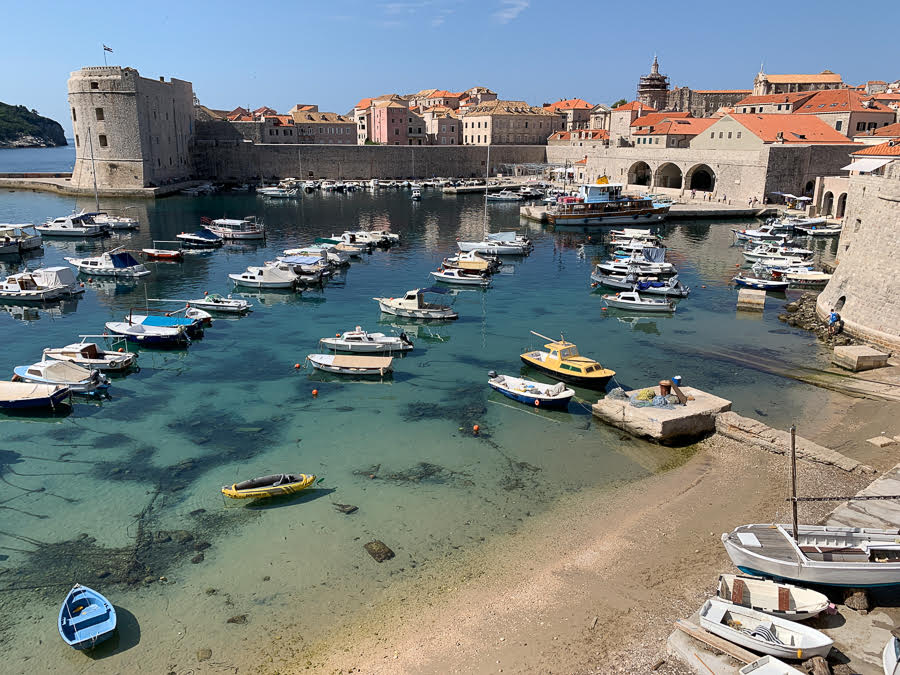
(From the upper courtyard, you get an expansive view of the harbor and the old town.)
For the latest news about digital nomads in Croatia, including that sought-after nomad visa, check out the dedicated TCN digital nomad news section.
Learn more about the Dubrovnik for Digital Nomads conference.
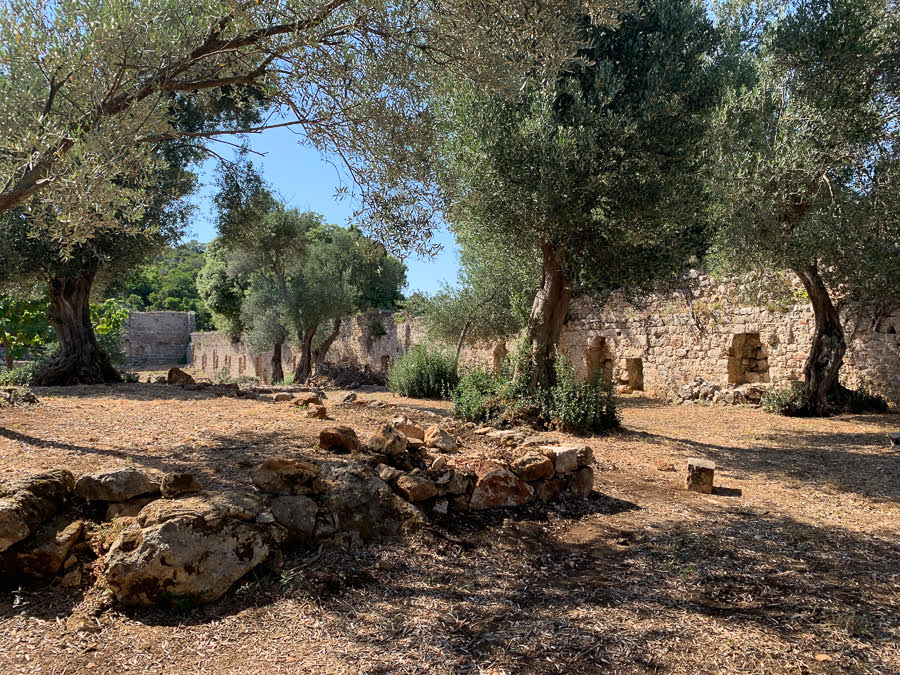
(A large lazaretto on Lokrum, under construction in 1534 was never finished but its remains are still visible. Benedictine monks planted an olive grove in the central courtyard.)
TravelOffPath's Kashlee Kucheran on Croatia's Digital Nomad Potential (Interview)
October 24, 2020 - As the final details of its digital nomad visa are ironed out, a look at Croatia's digital nomad tourism potential from a global perspective via Kashlee Kucheran of TravelOffPath.
It has been a challenging year to be a travel blogger.
Back in March, as Croatia locked down and TCN provided its comprehensive COVID-19 coverage, including daily live updates, life was not much fun. While the information and updates were appreciated by many, writing about death and disease 7 days a week took its toll, quite apart from the challenge of trying to keep on top of the information in a fast-changing situation. And we were only focusing on one country.
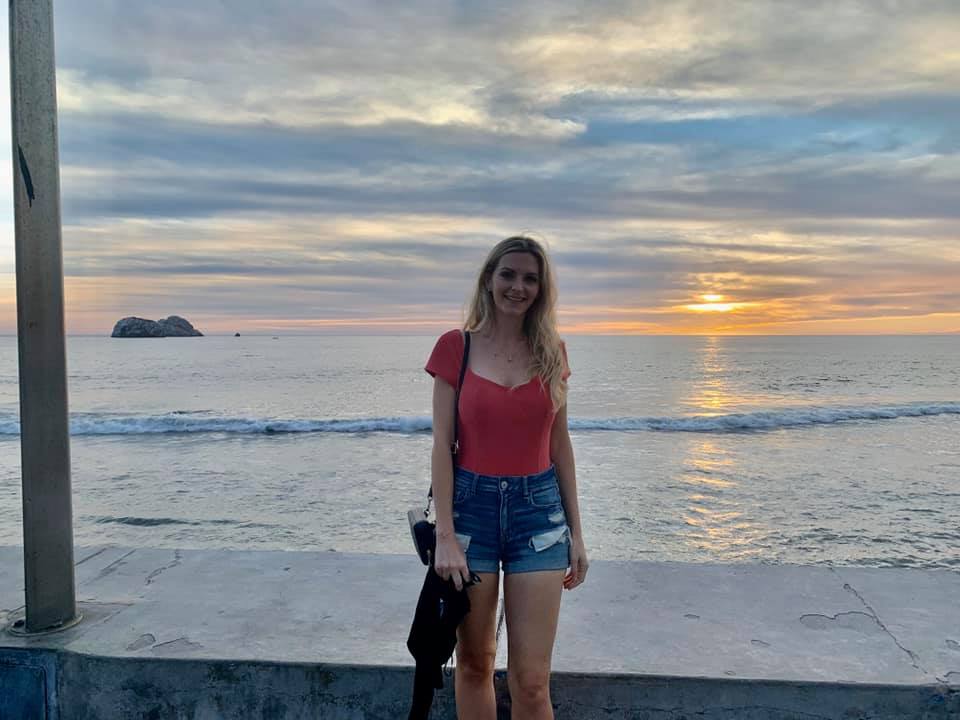
Meet Kashlee Kucheran, a digital nomad with itchy feet, whose TravelOffPath website is growing rapidly in popularity as she focuses on an opportune niche to provide readers with the very latest updates on travel during the corona era. But not for just one country, as we did, but for the whole world.
Keeping such a close eye on the latest developments all over the world, as well as moderating a very active online community for digital nomads looking for the best places to travel to in this strangest of years, Kashlee has a very rounded perspective on current digital nomad trends, interests and preferences. As such, she was invited to be a keynote speaker at the recent Dubrovnik for Digital Nomads conference, where her presentation was one of the highlights of a very entertaining opening day. Read more in "Croatia Has the Potential To Be World's Number 1 Digital Nomad Destination"
I contacted Kashlee after the conference, and she kindly agreed to an email interview about Croatia's digital nomad opportunity.
1. You have been on the road for more than three years, and your successful Travel Off Path blog has become essential reading for digital nomads in the corona era. Tell us firstly when Croatia first came on the radar for you as a digital nomad destination.
Being a digital nomad, I am always on the lookout for new and trendy options to base myself out of for a while. Most of the places nomads frequent are destinations like Thailand, Bali, Vietnam, etc, and as much as I love them all, they all start to blend together. Personally, I have been yearning for a digital nomad destination that has a different feel and scene to it. When I stumbled upon Croatia as a new potential country, I had that “Aha! This is what I’ve been looking for” sort of moment. A country with totally different vibes, from the architecture, to the culture, to the weather, all of which completely appeal to me.
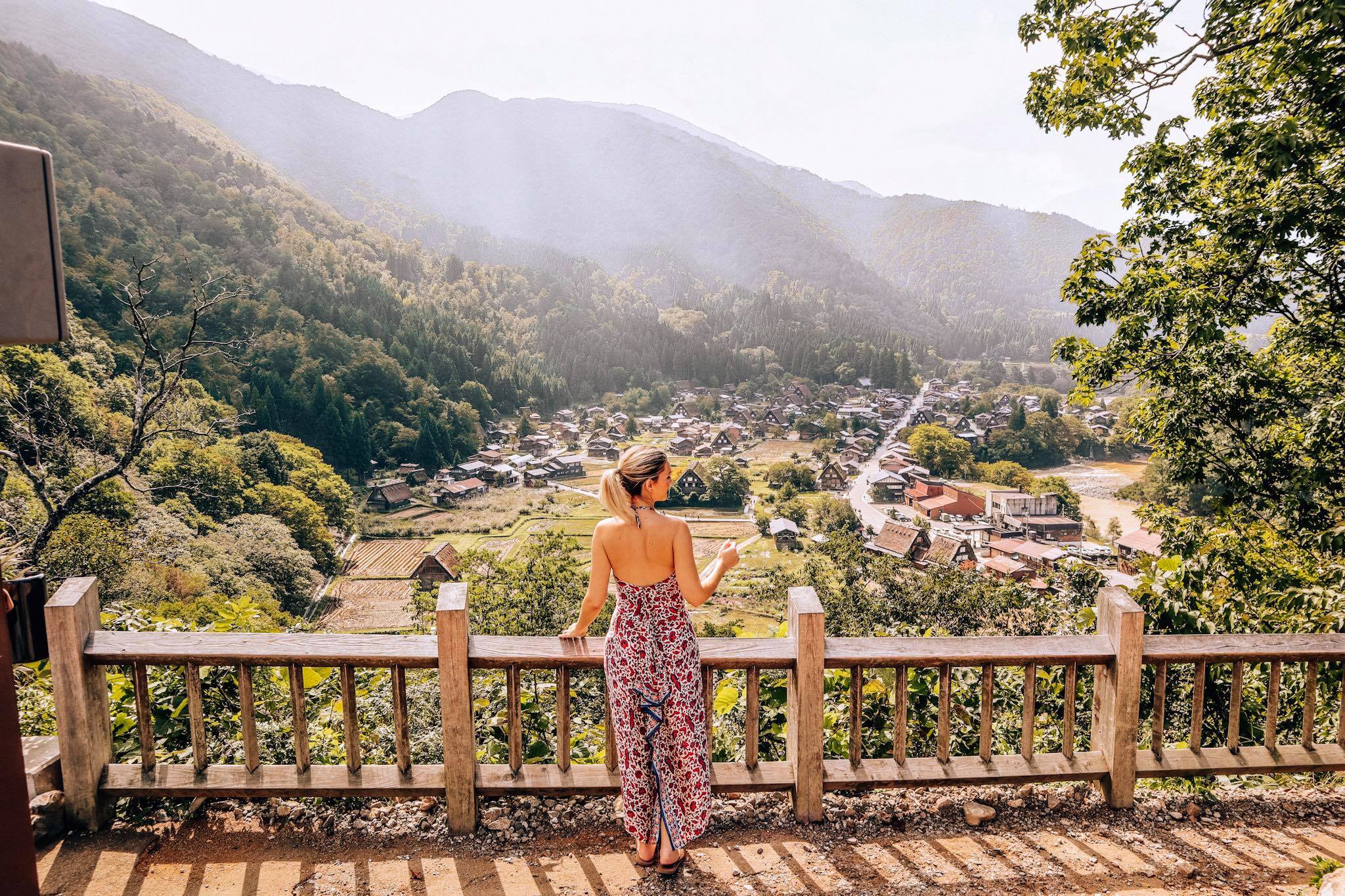
2. During the conference, you stated that interest in Croatia was 'absolutely buzzing' right now. When did you notice the rise in interest in Croatia, and what do you think caused it?
If there was a way I could extrapolate the use of the word ‘Croatia’ being mentioned on my website, in my Facebook groups, and in my DM’s, you would see a graph with a sharp and sudden rise. Croatia has been on the tip of everyone’s tongue lately, especially with American digital nomads, who by the way are a group expected to reach 10 million in size by the end of 2020.
I first noticed the extreme bump in popularity when the rest of the European Union, along with all the South East Asian countries that nomads frequent, shut their doors to most foreign tourists. American, or US citizens, make up the largest group of worldwide nomads, and they found themselves locked out of all their normal go-to destinations. However, Croatia made the bold and progressive decision to allow American tourists, along with all other nations, as long as they came with a negative PCR test, showing they were virus-free.
What happened was a massive surge in stranded tourists making Croatia their destination of choice, since the nation was welcoming them with open arms. We saw people from all over the world, but especially the USA, suddenly changing their itineraries and plans and making their way to Croatia.
3. What advantages does Croatia currently offer the remote worker on the road in these crazy times compared to more established nomad destinations.
Well, the first advantage is that Croatia will actually let them in! Like I mentioned before, Asian countries like Thailand, Vietnam and Bali are all still closed for tourism. Colombia, another up and coming nomad hotspot was closed from March, finally reopening just this month. The choices for nomads is slowly starting to rebound, but still a fraction of what it was pre-pandemic.
Another advantage is cost. The Caribbean nations currently offering digital nomad visas, like Barbados, Bermuda and Anguilla, all have an astronomical cost of living. Bermuda is in fact the most expensive country to live in on the planet, and if there is anything a nomad values, it’s a reasonable cost of living.
Croatia, while still being in the EU, thankfully has a very reasonable cost of living coming in lower than Germany, France, Italy, and even Greece. It also has a much lower cost of living than the countries where most nomads are from, including Canada, the US, Australia, and the UK.
4. Let's imagine life goes back to normal and everything opens, and it is as safe to travel again as before. Would the Croatian nomad beacon still be shining as brightly, or is it largely due to a specific set of circumstances?
If tomorrow the pandemic suddenly ended, and all countries reopened with no restrictions, I still firmly believe that Croatia is still positioned to be one of the top, IF not the top, digital nomad destination.
Some of my reasoning for this include:
Fear of the unknown – Even if the pandemic ended, people are going to be apprehensive about travelling so far from home, to countries that experienced extreme lockdowns. They are going to want to stay a little closer to home, a little closer to first-world health care, and to have easier access to international airports. Heading back down to South East Asia might be overwhelming for many who are concerned about second-waves, re-closures and potentially getting stranded once again.
The romantic European dream – Who doesn’t daydream about sipping wine beside the Adriatic sea, while strolling down cobblestone streets, past ancient ruins, into a cute café to set up their laptop for a few hours work? There is an entire romantic notion about Europe that a lot of nomads, especially ones from the West, fantasize about. Sure, nomads can still land in places like Germany or Italy, but those countries don’t have official/legal nomad programs, limiting the amount of time you can spend there, and technically not permitting you to actually ‘work’ from those locations.
Croatia checks all the boxes – Digital nomads have a mental checklist of what they require in a live/work environment, and Croatia checks all the boxes, including:
- Access to great health care
- Favorable weather
- Good cost of living
- Fast internet speeds
- Connections to major airports
- Accessible entry requirements
- Emerging nomad infrastructure
- Safety
- Trendy culture and community
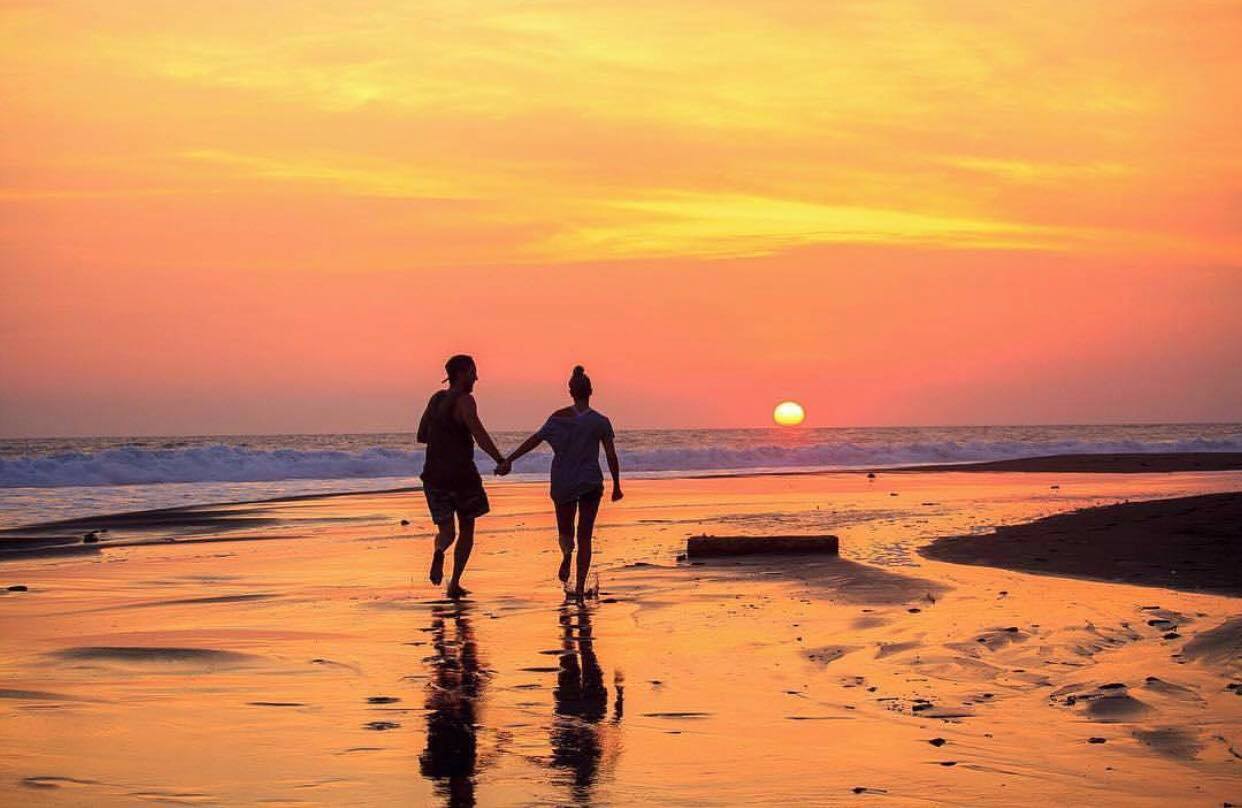
5. Croatia has announced that it will introduce its own digital nomad visa, planned for early 2021, making it only the second in Europe after Estonia, and the seventh in the world. What advice do you have for the Croatian government about the conditions of that visa? I understand that they will include proof of no criminal record, health insurance, and a regular income which is planned to be lower than the 3500 euro a month in Estonia and $5000 a month in Dubai.
If I had a direct line to the government of Croatia with advice on how to effectively proceed with the framework of the Digital Nomad Visa, it would include these tips:
Make requirements accessible: Find the sweet spot of making the requirements high enough to attract the target nomad, but not too high to discourage growing entrepreneurs. Since Croatia’s cost of living is lower than many EU nations, the minimum monthly income should reflect that.
Keep entry open: Keep Croatia’s doors open to all nations, with PCR testing of course, to ensure that nomads can continue to have faith in making plans to settle in Croatia.
Make the visa affordable: Estonia’s Visa costs only 100 euros, while Georgia’s is free. Keeping the visa under a few hundred Euros is key to attracting nomads. Some Caribbean nations are charging $2000 for a 1-year visa, completely missing the mark. When nomads come, and their entire budget isn’t eaten up with legal formalities, that is just more cash they will inject into the local economy.
Re-consider taxing nomads: Under all the current digital nomad visas being offered worldwide, only ONE of them (Estonia) taxes nomads, and that is only after 6 months of being in the country continuously. If Croatia is considering taxing nomads under their DN visa, I believe the program will crumble. Nomads will instead choose other countries with less restrictive programs, or continue to live/work in countries, mostly in South East Asia, on (albeit technically illegal) terms.
6. During your presentation, you said that Croatia has the potential to be the number one digital nomad destination in the world. And you have yet to visit! You clearly have unique insights due to the website that you run. Why do you believe Croatia can be number 1?
I believe Croatia can be number one because of its great placement in Europe, having less repressively year-round hot weather that many nomads are looking to escape, having a unique culture and history, and of course being drop-dead gorgeous.
It sounds funny to make such a claim about a country I have yet to visit, but being a digital nomad myself for years gives me an insight to what nomad ‘wants’ and ‘needs’ are.
For many years, I chose South East Asian countries because quite frankly that is where everyone went, the DN infrastructure was set up incredibly fast, and there were hardly any other options that offered an actual above-board program. Having options beyond the well-beaten nomad path is a breath of fresh air to this lifestyle.
7. You source information about the latest corona travel restrictions all over the world to help travellers, which must be an exhausting job. How do you source this material to stay up-to-date - both globally and specifically from Croatia.
You’re right! It is an exhausting job, but I love it.
Travelers all over the world are beyond frustrated at the ever-changing travel bans and strange new rules, and I love being able to offer some clarity and assistance in these trying times.
Our team at Travel Off Path work tirelessly every day to get the most up to date information about worldwide travel news, entry requirements, and other vital resources for traveling in a Covid-era world.
We get our information direct from government sources, like embassies, consulates, border police, Ministries and other local authorities, in order to be as accurate and helpful as possible. Sometimes we use local press, like Total Croatia News, who are on the ground and have valuable insights that government sites don’t report on. We also have a Facebook Group where world travelers share their personal experiences around the globe right now, offering first-hand insightful perspectives.
With the information we have been able to consistently source from the Government of Croatia, and local Croatian news, we’ve made in-depth guides how to enter Croatia during Covid, especially for travellers who are locked out of most countries
8. The Dubrovnik for Digital Nomads conference was the first such conference for Croatia. Together with the City of Dubrovnik, Dubrovnik Tourist Board, Tanja Polegubic and her fabulous Saltwater team, and Total Croatia News, we will be organising an international competition for digital nomads to stay for a month in Dubrovnik for free, while helping the city (and wider region) develop a strategy to make it more welcoming and visible to the digital nomad community. During the conference, you said that you would be happy to join us in April. Can we get a confirmation, and how does the prospect of a month in Dubrovnik in April sound right now with you back in British Columbia with the Canadian winter to look forward to?
As you’re interviewing me, I’m looking out the window of my hotel room in Osoyoos, British Colombia Canada, and it’s snowing. As a nomad who hasn’t seen winter in over 5 years, the sound of coming to Croatia in April has me packing my bags with anticipation!
I am overjoyed and delighted to be a part of testing out Croatia’s new digital nomad visa, and I honestly cannot wait to see first-hand what all my readers are raving about.
I have no doubts that Croatia won’t just be a place I visit for 1 month but will most-likely become a part of my future story.
****
Itchy feet in these uncertain times? Follow the latest on where and how to travel with Kashlee Kucheran's TravelOffPath website, or join the TOP Facebook community.
More from the Dubrovnik for Digital Nomads conference:
Croatia Through the Eyes of a Digital Nomad: Croatia Courts the Global Workforce.
Reflections on Croatia's First Digital Nomad Conference in Dubrovnik.
After the Visa, Jan de Jong Announces Croatian Digital Nomad Association.
"Croatia Has the Potential To Be World's Number 1 Digital Nomad Destination"
For the latest about the digital nomad scene in Croatia, follow the dedicated TCN news section.
"Free 12-Month Dubrovnik Digital Nomad Healthcare" - Glavic Clinic Explains (INTERVIEW)
October 21, 2020 - "Free digital nomad healthcare in Dubrovnik for 12 months." It was certainly the headline of the opening day of Croatia's first digital nomad conference. But what did Glavic Clinic mean exactly? TCN asks the woman who made the commitment, Nikolina Kurtela, Deputy Director of Glavic Clinic.
It was the shortest presentation of the day, one of the funniest, and definitely the one which provoked the most comment as attendees on the first day of the recent Dubrovnik for Digital Nomads conference retired for a well-earned glass of wine after a stimulating opening day.
The slide said it all, and it was hard to misread - All services in Glavic Clinic Dubrovnik - free services for one year to all digital nomads!
Reaction was immediate, both at the conference (wow!) to more skeptical responses on social media.
"One can only imagine what Croatia will charge for the visa if there is free healthcare," commented one. To be clear, this is not a general announcement of free healthcare by every provider in Dubrovnik, it is an announcement from one clinic.
What did it mean exactly, and who can apply for the free services? Rather than try and answer myself, I thought it would make much more sense to ask the lady who made the announcement. I am very grateful to Nikolina Kurtela for finding the time to answer my email questions in search of clarification.
- You gave a presentation on behalf of Glavic Clinic at the recent Dubrovnik for Digital Nomads conference. Tell us firstly why you decided to take part in and be a sponsor in such a conference?
That's right, during the Dubrovnik for Digital Nomads conference, Glavic Clinic participated as a speaker and as a sponsor. Although otherwise as a Polyclinic very much we work in a humanitarian manner and with free work, helping many patients and people in need, event sponsorship is not part of our firm policy. Nevertheless, we recognized the Digital Nomads Conference as a top project connecting proactive and smart people around the world and presenting Croatia, especially Dubrovnik as a city, where one can find a second home and continue to operate a successful business.
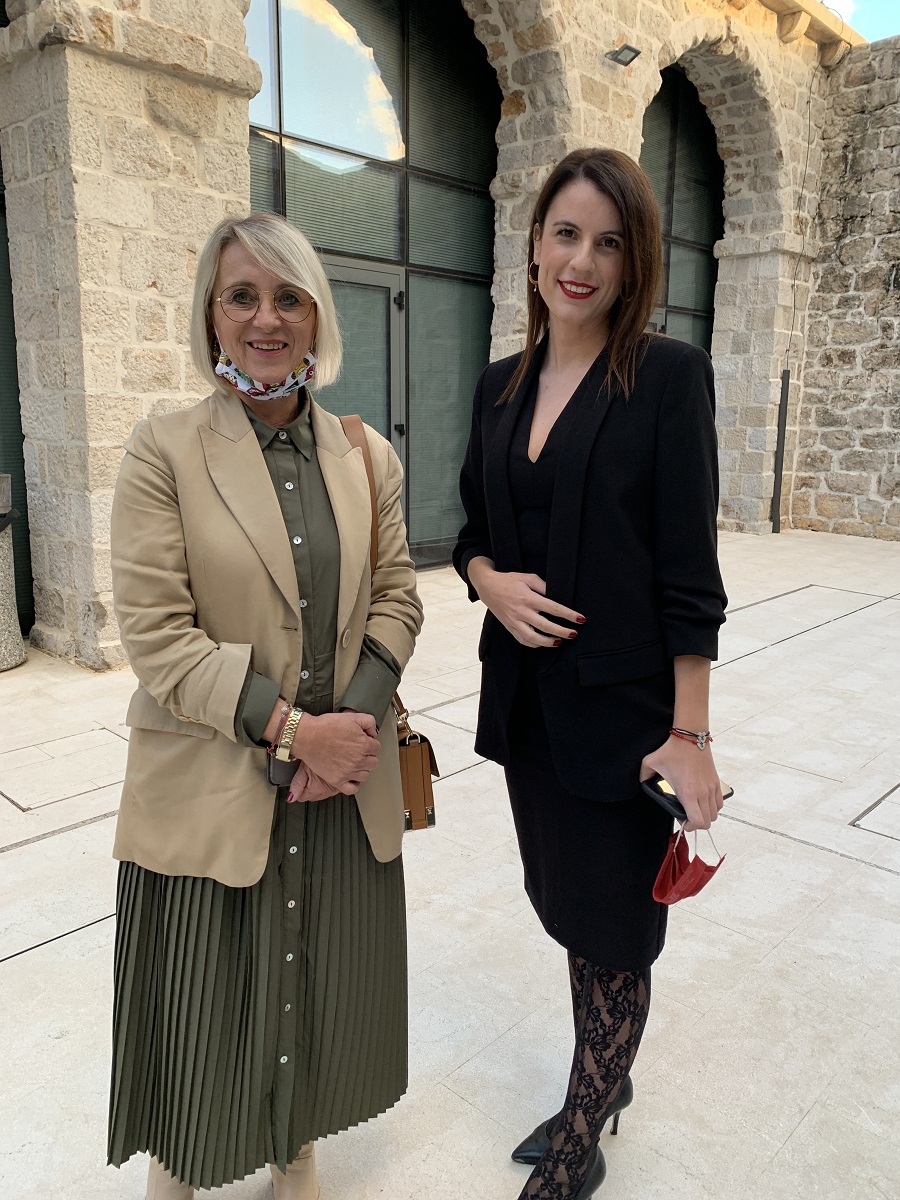
- How much do you know about the digital nomad concept, and how do you see the opportunity for Croatia in general and Dubrovnik in particular?
I have to admit that before Digital Nomads conference I had much less knowledge than now. All the information I had was mostly from the media, but working on the project and the idea throughout preparations for the presentation delighted. In this project, we recognized a great opportunity to help the City of Dubrovnik position itself as a nomad-friendly city that is open to all business people who want to move their home office to one of the most beautiful cities in the world. Dubrovnik is still oriented towards seasonal tourism that lasts 4-5 months, I think this is great way to get to Dubrovnik and we are developing year-round tourism and service provision in Croatia, which would certainly help to preserve a larger number of permanent jobs 365 days a year.
- And now tell us more about THAT announcement. Free 12-month healthcare for digital nomads coming to Dubrovnik. Are you crazy? Some initial reaction to this is that this is some kind of scam to grab publicity.
Hahaha, I think a little craziness is always good in life, but I would like to mention the „main man role“ for this "crazy idea" is being played by the director of Glavic Clinic dr. Joško Glavić. During our conversations about the Digital Nomads project, he said he wanted to do something special and help all the nomads who choose Dubrovnik as their base feel welcome and safe in the healthcare segment that we know is often the biggest concern for all travelers and foreign nationals.
No, the idea is not a scam or an attempt to grab publicity because it is commonly known that as a Polyclinic, we normally avoid being in the media. The idea is just a continuation of our humanitarian work and helping people, in this case digital nomads.
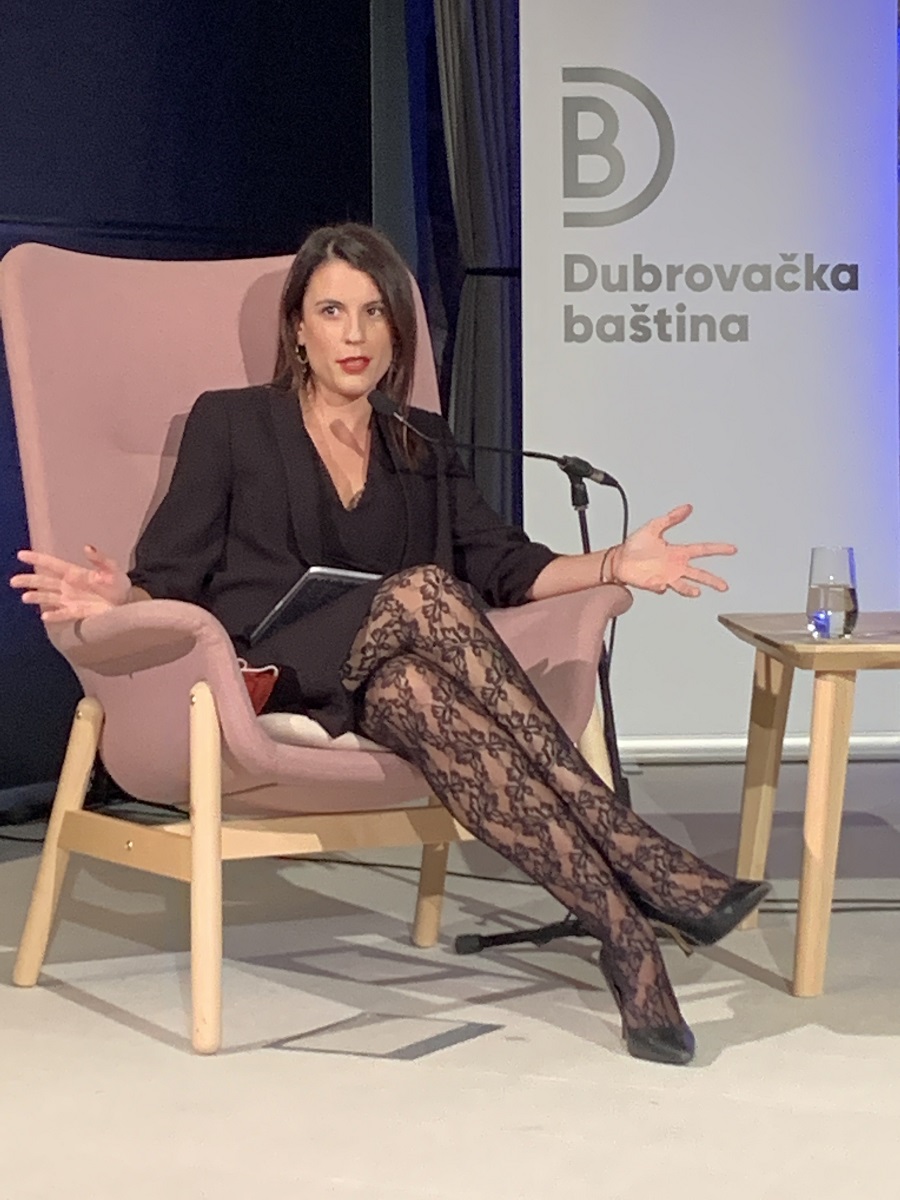
- It sounds a great headline. Please clarify EXACTLY what you mean, and what digital nomads have to do to qualify? Is it just for nomads in Dubrovnik or elsewhere?
Therefore, in order to exercise the right to free services at the Glavic Dubrovnik Polyclinic, Digital nomads must have a visa for digital nomads and choose Dubrovnik as their place to live for a year during which they will have all our services available free of charge. (Editor note: the visa is expected to be available in the first quarter of 2021.)
- Glavic Clinic has a reputation for humanitarian acts. Tell us a little about that, as well as the services you offer, and your European expansion plans.
Glavić Clinic is the only clinic in this part of Europe that deals with robotic neurorehabilitation patients with neurological impairments and movement and motor difficulties in most commonly diagnosed cases with cerebral palsy, stroke, spinal cord injury, trauma heads and numerous others. Aware that we live in a part of Europe that is not the strongest in terms of income and that we have many economically vulnerable citizens, we want this concept treatment to be available to all.
Precisely because of that, in both centers, and it will be the same in the new centers, 30% of our patients are in a completely free program and they are being rehabilitated without payment, besides that during the year we organize 2-3 major charity actions. Health is wealth and that is why we try to provide it to the most endangered patients and there are our patients in the humanitarian program from Croatia and neighboring countries are often orphans, homeless people, national minorities, etc.
Given the uniqueness of the treatment concept and the successful results, due to which we are known as a reference center for the EMEA region, we want to expand our business beyond Croatia and we are currently in the process of leading the opening project in Madrid and Amsterdam as well as the USA. But unfortunately, as with everyone else, the Covid pandemic has slowed us down and made our travel and operational work more difficult. We are sure that by expanding abroad and in our foreign clinics we will benefit services of Digital Nomads and continue the chain of connecting and networking smart and capable people.
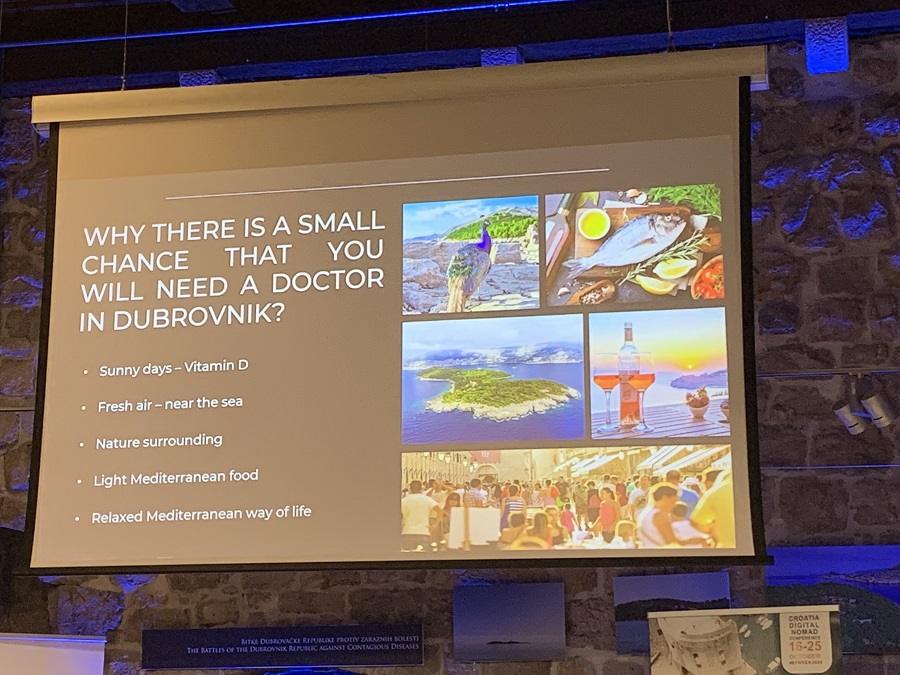
- This was the first-ever digital nomad conference in Croatia. Tell us how it was for you - what struck you the most?
This conference, for me was a wonderful experience where I met a lot of smart and enthusiastic people who are certainly one of the drivers of change in the world. I was most struck/suprised by all the positive energy and preparedness of the system and the Republic of Croatia to really attract digital nomads to our country and show them all the beauties of life in Croatia, which I partly explained to you in the presentation.
You can learn more about the services of Glavić Clinic on the official website. I am sure they would be happy to answer your digital nomad healthcare questions as well.
More from the conference:
Croatia Through the Eyes of a Digital Nomad: Croatia Courts the Global Workforce.
Reflections on Croatia's First Digital Nomad Conference in Dubrovnik.
After the Visa, Jan de Jong Announces Croatian Digital Nomad Association.
"Croatia Has the Potential To Be World's Number 1 Digital Nomad Destination"
For the latest about the digital nomad scene in Croatia, follow the dedicated TCN news section.
Croatia Through the Eyes of a Digital Nomad: Croatia Courts the Global Workforce
October 21, 2020 - Continuing our series, Croatia Through the Eyes of a Digital Nomad, Cyndie Burkhardt takes a behind the scenes look at the recent Digital Nomads for Dubrovnik conference.
Hyping its forthcoming new visa, Croatia’s first conference for digital nomads is fittingly brought to life by a truly international team who live and breathe the lifestyle
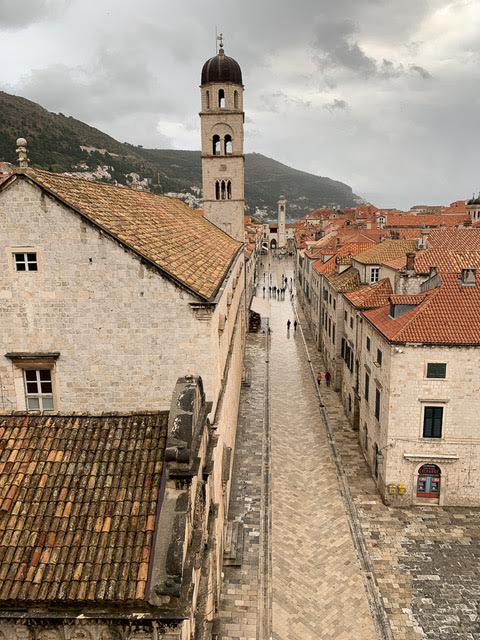
(Stradun is the main pedestrian street that runs through Dubrovnik’s Old Town.)
When I left home over a year ago to travel the world and pursue a project covering 12 countries in 12 months, I never considered myself a digital nomad. True, I sold all my things, gave up my apartment, left family and friends, and cut ties to become location independent. The move signified forward momentum, growth, freedom, adventure, and greater connection to people everywhere. World explorer! Cultural experiences! Global friendships! Living my best life! It was well thought out and grand. “Digital nomad” somehow implied restlessness, irresponsibility, immaturity, homelessness, and a certain grunge existence. The label surely didn’t apply to me.
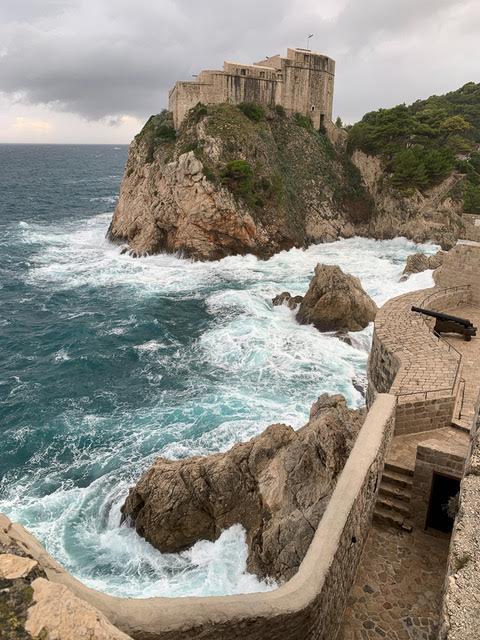
(Lovrjenac is a limestone fortress that sits just outside Dubrovnik’s city walls and overlooks the sea.)
Working while traveling
Then I started traveling, working abroad, and meeting people doing different versions of my hustle. I love stories about why people travel and what they get from it. Some of the more intriguing ones involve leaving home and never going back, splitting time between locations, or simply continuing to move. These bold moves have as many twists and turns as the sea has waves, and often dreams, hard work, love, and opportunity are the driving factors. I’ve noticed that people who figure out a lifestyle around travel and work have a certain mindset. It’s global, inquisitive, open, resourceful, passionate, and more tolerant.
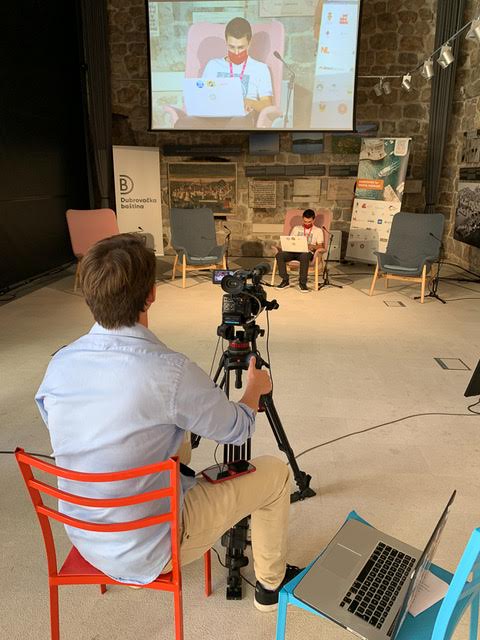
(Testing the speaker set up and camera angles before the conference.)
Who are digital nomads?
While the pandemic caused travel shutdowns and forced many workers into remote status, there’s been plenty of time to reevaluate my own life and work here in my (unexpected) new home country. What if all the people I’ve been talking to are in fact digital nomads? What if they work remotely and simply like to travel, experience different cultures and meet local people, are interested in engaging with broader communities, and want to give back? Hang on a minute, they’re just like me. My outdated stereotype was shattered. In fact, the world is embracing the positive concept of digital nomads and it’s great.
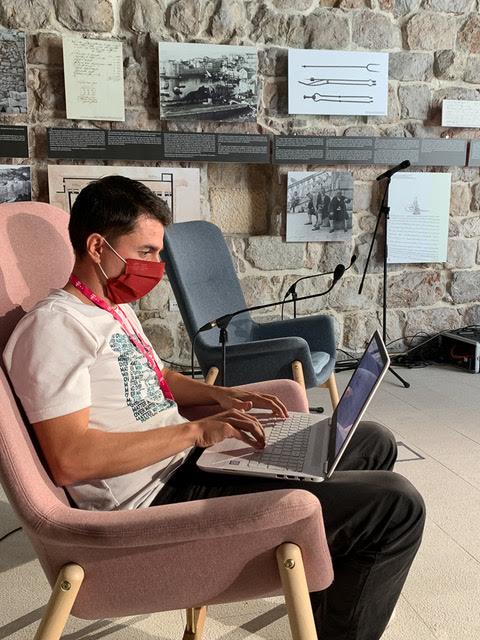
(Preparing for the first day’s agenda and panel discussions.)
Croatia’s first digital nomad conference
A marvelous opportunity is rising from the pandemic. Specifically, a handful of countries instated a digital nomad visa which allows remote workers to apply for a 1-year residency to live and work in the country. Croatia has been at the forefront and its digital nomad visa is expected to be available in early 2021.
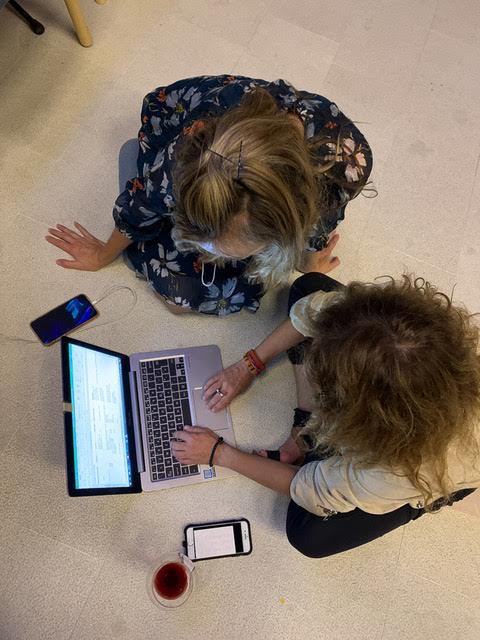
(Reviewing the conference program and final details.)
In anticipation, Croatia’s first digital nomad conference, called “Dubrovnik for Digital Nomads,” kicked off European Freelancers Week (#EFWeek2020, October 16-25) in that beautiful Dalmatian city. I had the good fortune to be on the frontlines and I worked alongside an international event team that was nothing short of rock star. To clarify, the team worked hard but we were non-paid volunteers who put together a robust two-day program that was both live and virtual.
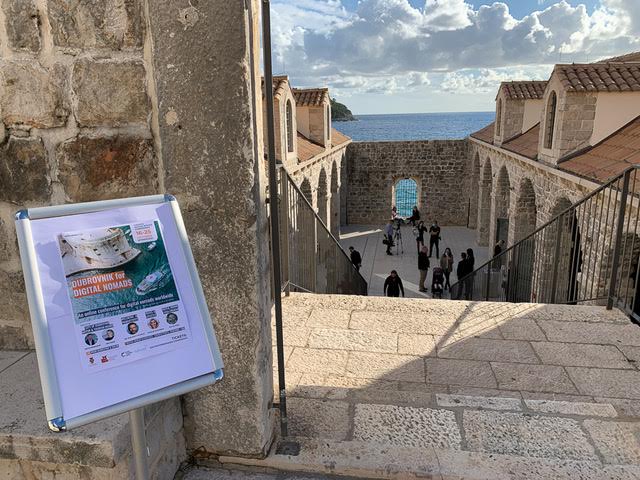
(The digital nomad conference is held at the Lazareti..)
An international team
Our team hails from Australia, Chile, Croatia, New Zealand, the UK, and the USA. All of us are in Croatia with different circumstances and reasons but we share something in common—our love for the digital nomad lifestyle and everything this beautiful country has to offer. Beyond the professional skills we brought to Dubrovnik, a range of personal pursuits reveals a depth of talent among this team that is only surpassed by unending wit.
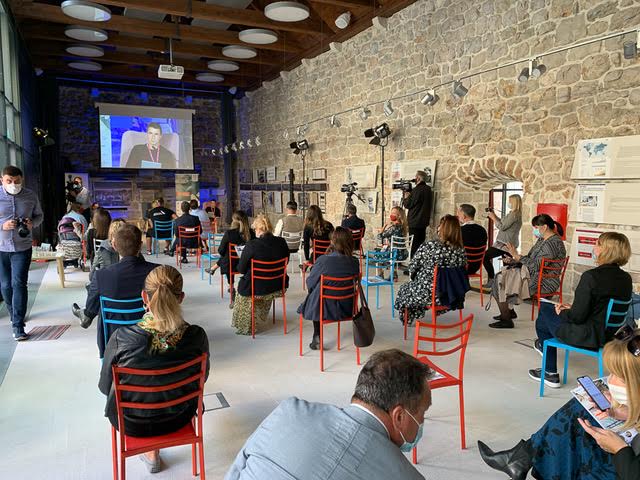
(Attendees practice social distance safety.)
One of the girls wants to start a vineyard in Chile. Another one spent a bunch of years in Cambodia and makes gorgeous wrap dresses, while another develops student education programs at the university and collaborates with international campuses. One of the guys runs a sick sailing business (in a good way) where remote workers can get the job done at sea, on a luxury yacht, with high speed internet. I want that job! Other pursuits include social enterprise work, building audio visual systems, UX coding, running coworking spaces, and operating one of Croatia’s top online news media companies. Wow. If these are the types of people Croatia is courting, I’m in excellent company.
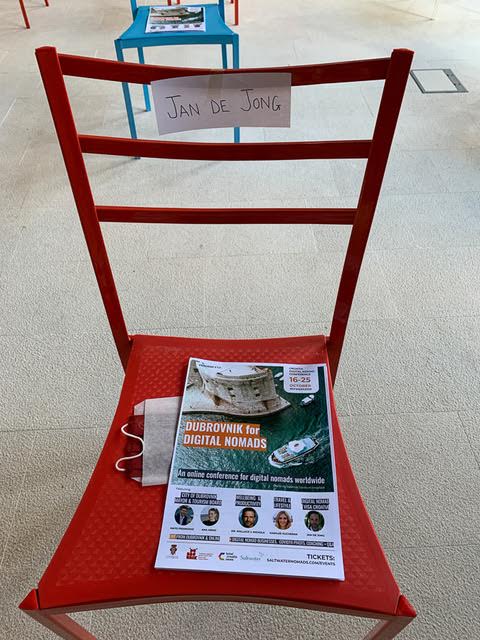
(Attendees receive a face mask with their program.}
2021’s hottest global travelers
The overriding feeling among the event team, as with the conference organizers, attendees, sponsors, and partners, is optimism for the new visa and the benefits that digital nomads can bring to communities and countries. With good understanding of who they are and reliable structures to support these people’s true needs, the lifestyle will blossom. Look for me out there waving my digital nomad flag!
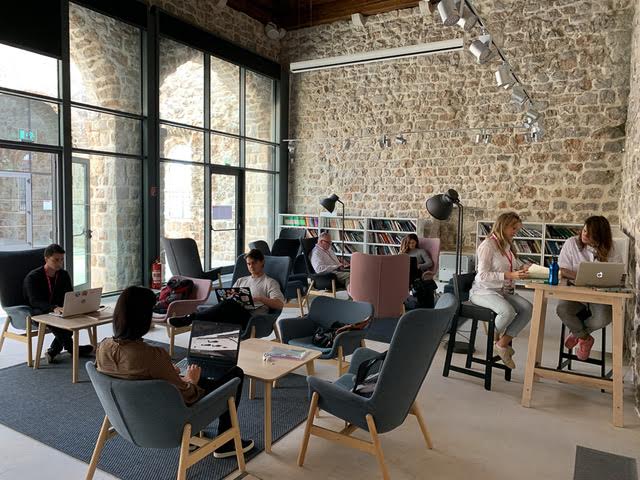
(Well-designed co-working spaces keep digital nomads efficient. This one at the Lazareti is free during Freelancer’s Week.)
Learn more about the conference and new visa at TCN’s Digital Nomads channel.
Story and photographs ©2020, Cyndie Burkhardt. www.photo-diaries.com.
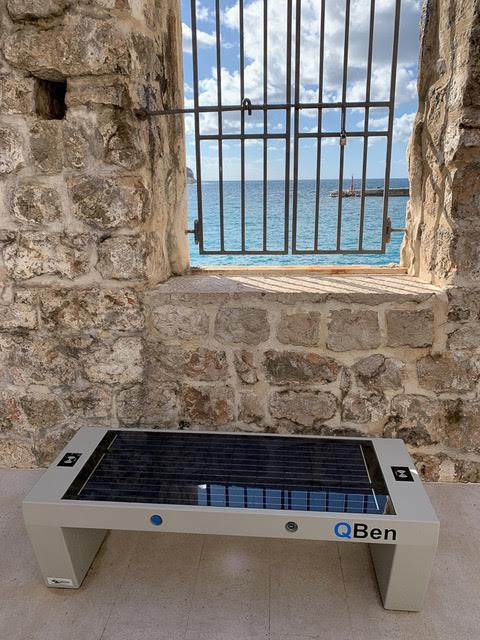
(A bench outside the co-working space doubles as a WiFi enabled device to ensure fast internet speed around the premises.)
You can read more of Cyndie's nomad journey in her column, Croatia Through the Eyes of a Digital Nomad.
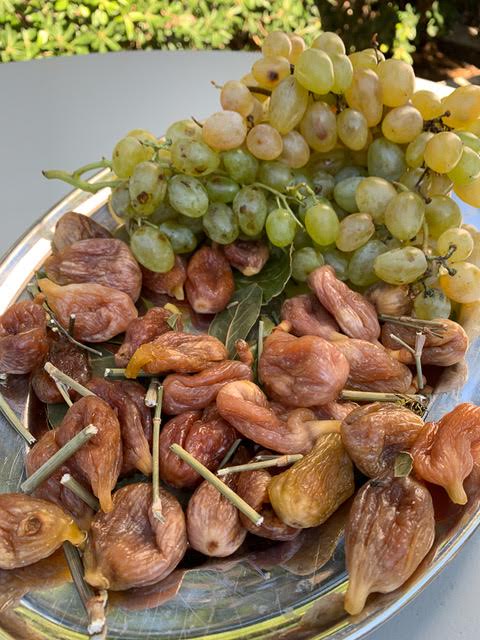
(Croatia’s natural resources include abundant fresh fruit, which surprise and delight visitors and locals alike.)
Reflections on Croatia's First Digital Nomad Conference in Dubrovnik
October 20, 2020 - The first 2 days of Croatia's first digital nomad conference had plenty of stimulating content from all over the world. Some thoughts on Croatia's positioning and how to take advantage.
One of the things I have noticed over the years in Croatia is how new ideas are usually met with skepticism or are immediately dismissed. It seems at times that positive initiatives are somehow almost not welcome.
This time it is different. When I first started to write about the potential of digital nomad tourism in Croatia almost 18 months ago, the reaction was initially lukewarm, but it soon warmed up. A common perception was that digital nomads were bloggers and influencers (which they can be, but there are SO many more types of remote workers, from company CEOs to consultants), and the topic was not that interesting or significant. Two things happened to change the discussion.
The first, of course, was the global pandemic. With so many people forced to work from home, the reality of remote working entered the national discussion for the first time properly. Working from home has its pros and cons and is not for everyone, but the enforced new circumstances due to corona helped raise awareness about remote working in a way no campaign could have done.
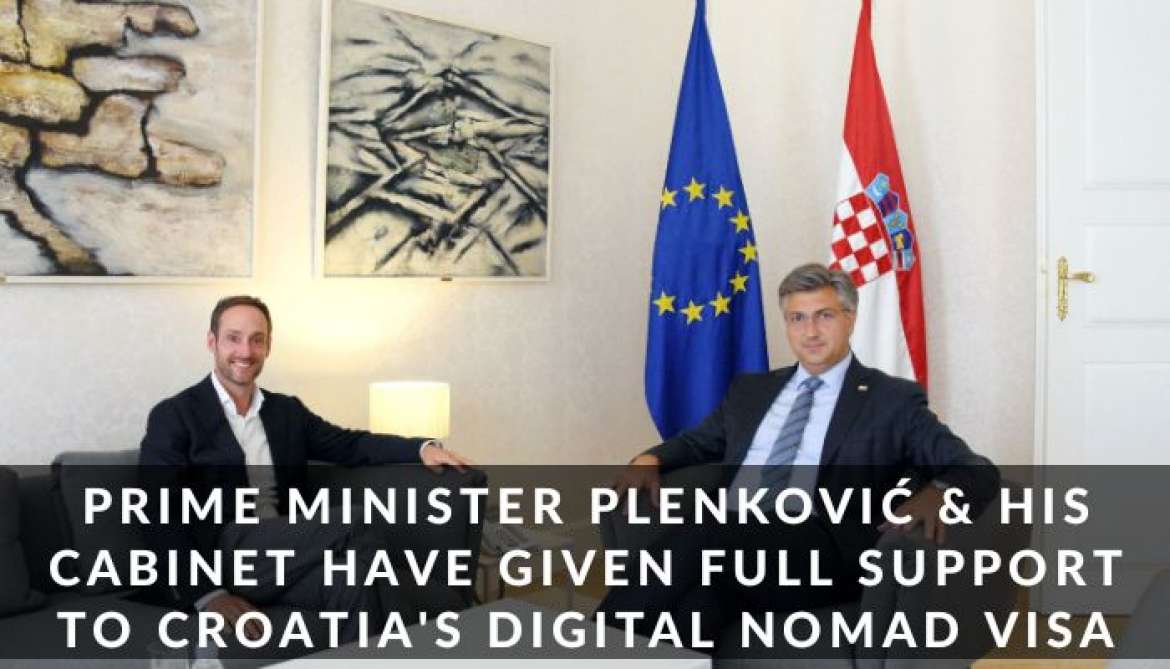
The second thing was the focused campaign of Split-based Dutch entrepreneur Jan de Jong for the introduction of a digital nomad visa for Croatia. Just 44 days after an open letter to Prime Minister Andrej Plenkovic on LinkedIn, the PM tweeted his assent, and legislation was introduced to Parliament the following day.
During the summer.
Croatian legislation and the adoption of a new idea has never moved that quickly in the 18 years I have lived in this beautiful country. People started to take notice. A prime minister reacting so proactively, the increased profile of remote working due to the pandemic, and the realisation that Croatia's current model of accidental tourism is not sustainable. Could digital nomad tourism be a new source of year-round tourism?
One of the things I am enjoying about this particular journey is how people's eyes are opened to the opportunity afforded by becoming a leading destination for digital nomads (my eyes included). The easiest way to explain it in a nutshell is very simple.
More and more of us around the world are now working in the same office. It is called the Internet. There are only two variables in this global office - connectivity (3G, 4G, 5G) and time zones. Apart from that, we are all in the same office. When we leave the office, we go home. Many people want to go home to the village they are from, their family and friends.
An increasing number of people want to go home to lifestyle and experiences, and the flexibility of the office is allowing them to choose locations all over the world to compliment their lifestyle.
Croatia is the lifestyle capital of Europe. Great weather, safe, accessible, affordable, full of natural beauty, great food and wine, things to do, EU member, offering culture and authentic experiences in abundance. Why not go for a swim in the Adriatic before dinner when you leave the office, for example?
The quickest official apart from the prime minister to grasp the opportunity was the Mayor of Dubrovnik, Mato Frankovic. I met Mayor Frankovic in late July and pitched a concept from our partners, Saltwater, to hold an international digital nomad competition to help the city develop a hands-on strategy for digital nomad tourism, working with international nomads, whose experience and input could help shape the city's direction in this new opportunity. Having spent a lot of my time in official offices during my time in Croatia, I was impressed with the speed of the response from Dubrovnik. Not only did Mayor Frankovic agree to our proposal (which will take place in April - more below), but he also declared that he was open to any new initiatives.
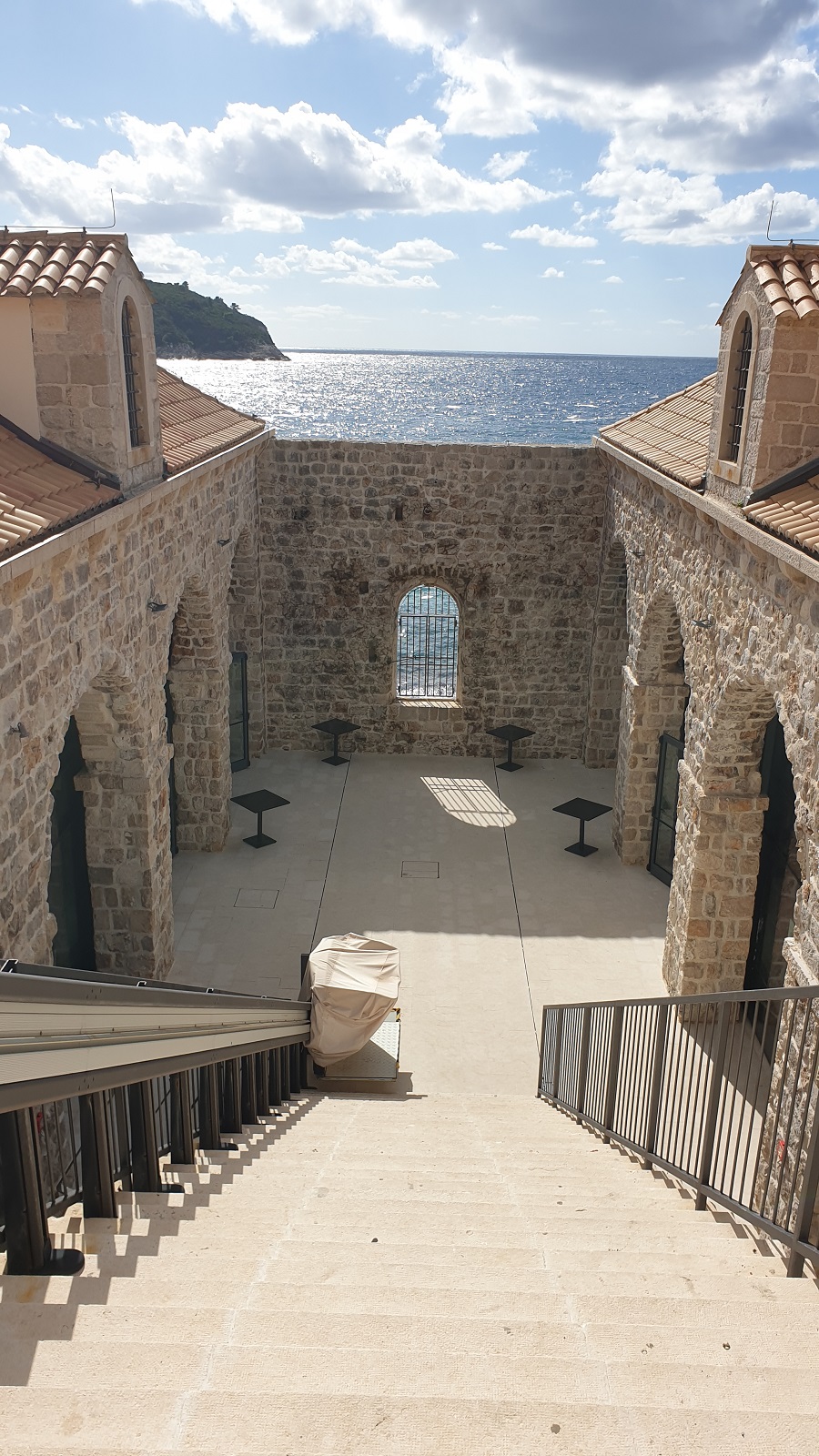
(The Lazareti, the original quarantine premises for the Dubrovnik Republic, which is where the first digital nomad conference in Croatia was held)
Which is how 'Dubrovnik for Digital Nomads', the first digital nomad conference in Croatia, came about.
It was quite an event, and one which will continue until the end of European Freelancer Week on October 25, but with the main focus on the two-day conference which ended on Saturday.
I have already written about some of the highlights - the view from British Columbia and why Croatia has the potential to be the number one digital nomad destination in the world.
Fresh from advocating for the nomad visa, Jan de Jong announced the formation of the Croatian digital nomad association, together with conference organiser Tanja Polegubic from Saltwater, and Karmela Tancabel.
And - in possibly the announcement of the conference - Glavic Clinic offered free 12-month healthcare for digital nomads in Dubrovnik who have the visa.
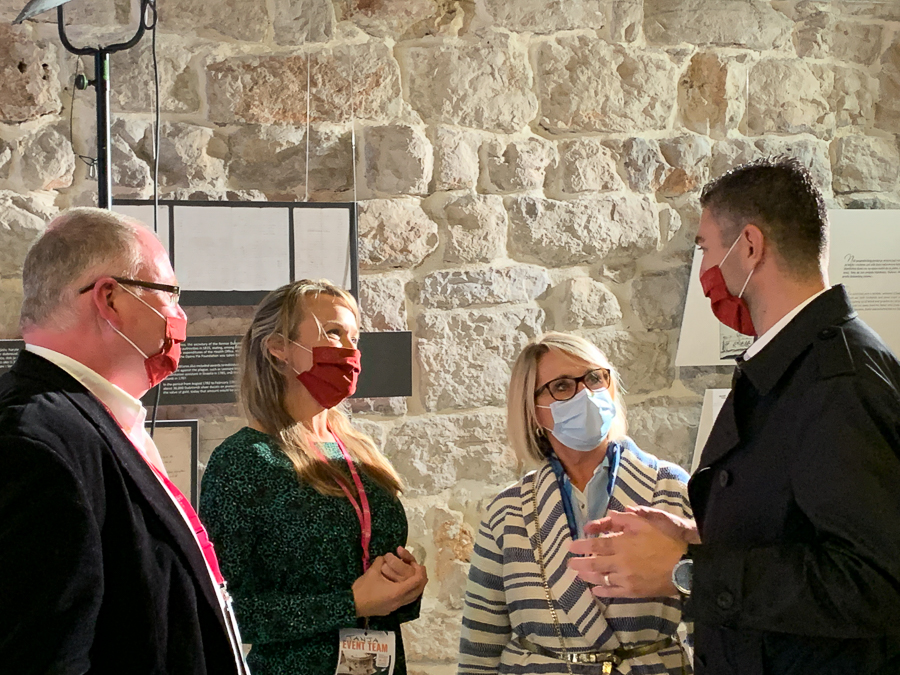
(TCN with conference organiser Tanja Polegubic from Saltwater, Deputy Mayor Jelka Tepsic and Mayor Mato Frankovic - Photos Cyndia Burkhardt)
The Glavic Clinic free healthcare announcement certainly got people talking, and I will be interviewing the Glavic presenter at the conference, Nikolina Kurtela, shortly for more details, but the generous gesture pointed to an interesting path for Croatia in this new journey - the willingness of the private sector to get involved and make this new departure a success. Most people realise that tourism will not be the same again, and it Croatia can build the foundations of digital nomad services (which go far beyond a bed and decent WiFi), there is a real opportunity to develop the sector into one which will contribute significantly, both to the economy and the mindset.
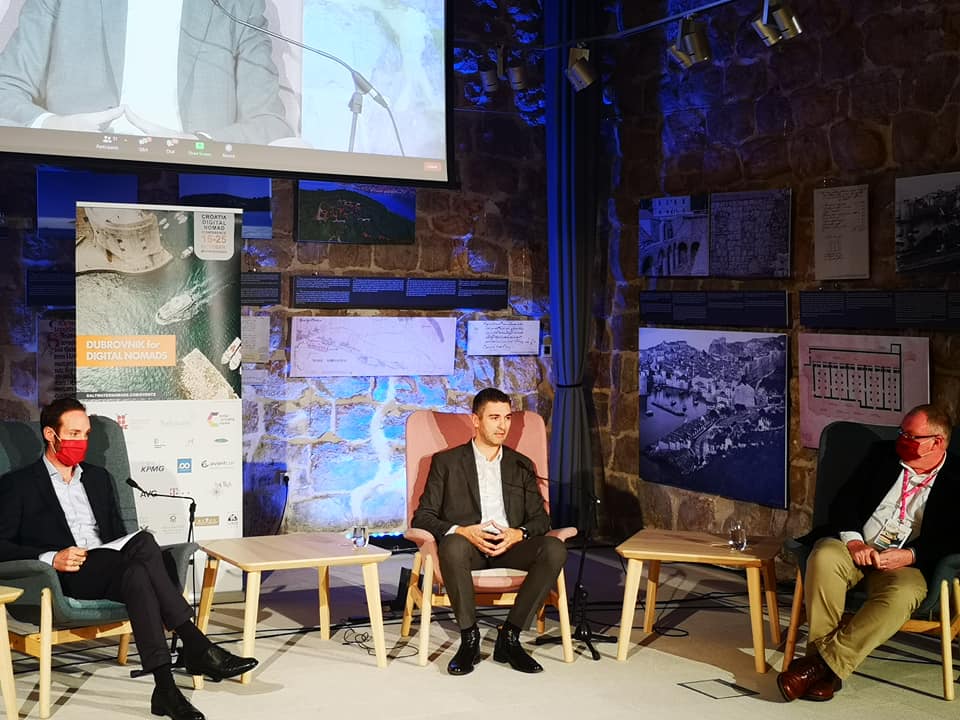
Mayor Frankovic certainly confirmed his full support for the initiative during the close panel hosted by Tanja, which also included Dubrovnik Tourism Board director Ana Hrnic, Jan de Jong and myself. There is a lot of work ahead to prepare for the international digital nomad competition in the city in April, which will give the city and wider a region to better understand and adapt to the needs of this new breed of visitor while developing a strategy in partnership with international nomads over a one-month period.
One of the key positives of the conference was the announcement of the Digital Nomad Association, which will be initially spearheaded by both Jan and Tanja. The new association will focus on five key areas of education, information, community, certification, and representation. In Jan and Tanja, the association could not have better ambassadors, and their combined vision and drive will steer this initiative in the right direction.
One of the key areas for Croatia's potential success is going to be on pricing, particularly in accommodation. There is a tendency here to accept long-stay guests, only to terminate the contract in time for the tourism season. As more nomads come, and the community grows, the association's plans for accreditation of nomad-friendly accommodation will be important.
Price will also be a factor in the visa, and here Croatia has a fantastic opportunity to get things right. As Kashlee Kacheran from Travel Off Path explained in her excellent presentation, the six nomad visas currently available around the world are wildly different in their conditions. The most expensive one, for example, is a whopping $3,000, while minimum income requirements of 3,500 euro a month in Estonia and $5,000 a month in Dubai, will exclude a significant number of would-be nomads. The terms are more favourable on Caribbean islands such as Anguilla, but with a population of just 15,000, one wonders how exciting life will be once the honeymoon beach and sunshine period has worn off.
Details of the Croatian visa are still being worked out, and nothing has been officially announced yet, but my understanding is that the basic requirements will include that application can prove that they have no criminal record, health insurance, and a level of income. That amount will be significantly lower than Estonia, at least in my opinion, as this is a great opportunity to have social media savvy nomads who are not earning megabucks enjoying Croatia and telling the world about it - you can't beat word of mouth recommendation for effective marketing. In terms of timing, de Jong explained that several ministries are proactively working on the details, in coordination with one of the tax architects of the Estonian visa, and he expects the legislation to be wrapped up by the end of the year, with the visa available in the first quarter of 2021.
There was quite a lot of comment in certain nomad Facebook groups that Dubrovnik is not a great digital nomad destination due to its high cost and with little to do.
I disagree.
One of the reasons we pitched the international digital nomad competition in Dubrovnik is that it currently suffers from an image problem of being a popular place to visit (I was genuinely surprised at the number of nomads who came to the conference, and even more who commented on social media that they were also nomading in or around the city) of being expensive with little to do outside the city walls. When the proposal was put together back in July, the monthly cost of living on Nomad List was cheaper in Dubrovnik than both Barcelona and Berlin - popular nomad hangouts.
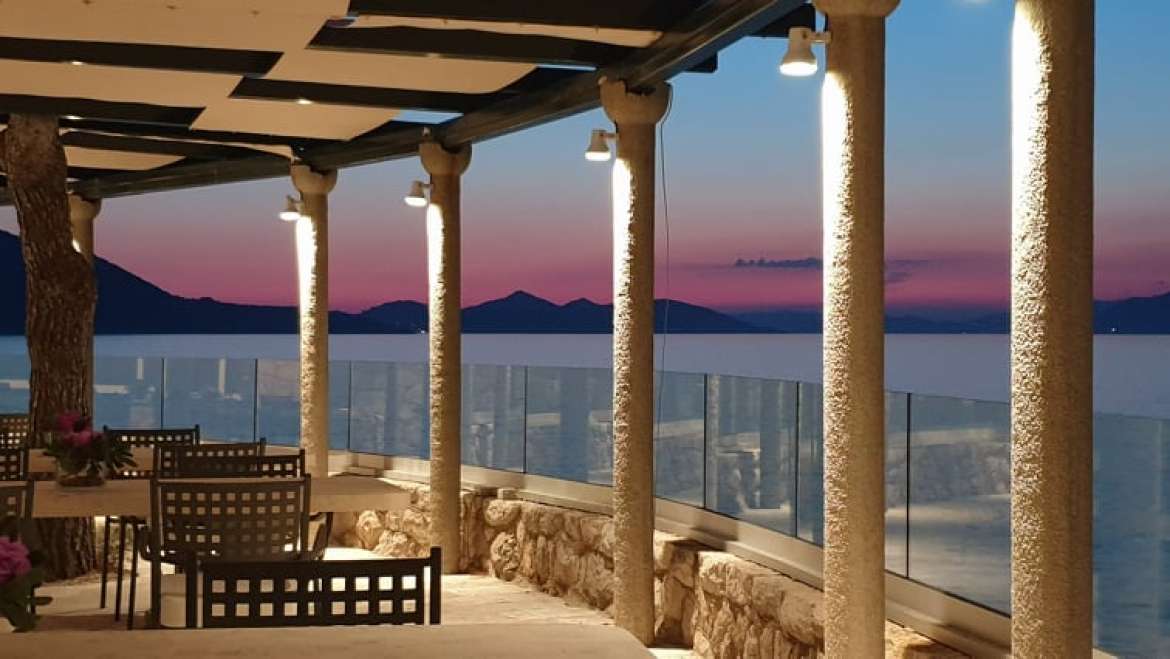
(Villa Ruza on Kolocep - just 30 minutes from Dubrovnik by regular ferry)
But seeing Dubrovnik as just the old town is a huge mistake in my opinion. You can get the very best out of this majestic city while enjoy a completely different - and significantly cheaper - experience close by, with easy access to the city whenever you want. One of the highlights of my summer was the wonderful island of Kolocep, just 30 minutes from Dubrovnik harbour by regular ferry, but a world away. (Learn more in Arise Kalamota! Kolocep, 30 Mins from Dubrovnik But a World Away).
Look at Dubrovnik region, rather than just the city, and a whole new world opens up. From the diverse island beauties of the Elaphiti, Lastovo, Mljet and Korcula, UNESCO World Heritage Sites nearby in neighbouring countries such as the Bay of Kotor in Montenegro and Mostar's famous Old Bridge, to the wine roads of Peljesac and traditional Konavle way of life, there is so much more to Dubrovnik that the city walls and all that is contained therein. And, just as the tourism offer is diverse, so too is the makeup of the digital nomad. Those on higher incomes may be happy paying the coffee prices on Stradun, while those on a budget might settle for a longterm rental in a nearby village on the water., coming into the city on the regular bus service when the need arises.
This brings us to one of the greatest things that Croatia has to offer digital nomads - choice.
It is perfectly possible to spend time and have an excellent remote working experience in Croatia (and many do) without ever visiting Dubrovnik. On a budget? This single female digital nomad from Denver had an incredible six months in Osijek, one of the best places she had ever lived. Key pluses - price, people, nature, beauty, Internet, gourmet. As thousands emigrate from Osijek as there is no perceived opportunity, here is someone who had an incredible and affordable experience having originated from the other side of the world.
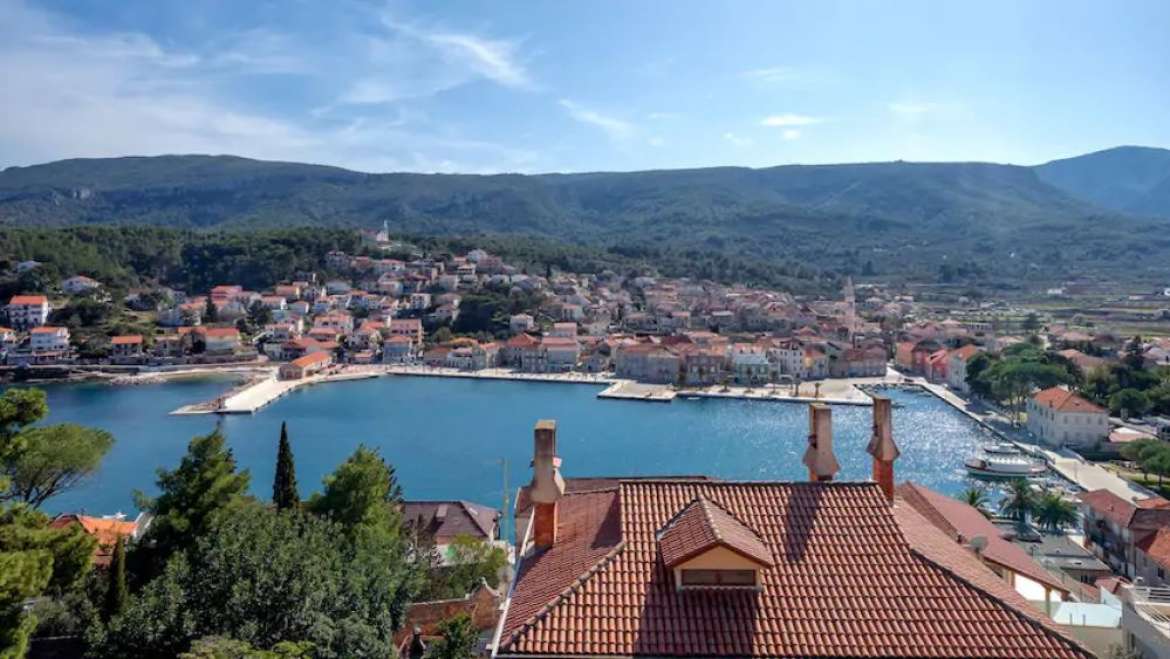
(Living the digital nomad lifestyle at Panorama Penthouse Jelsa on Hvar)
The current nomad hot spot in Croatia I would say is Split, which offers arguably the best combination of lifestyle, expat community, accessibility to islands and social life. Zagreb, however is not far behind, and we have just rented our apartment on Hvar for the month of October (another perceived expensive destination) to two nomads from Holland, who arrived with their bikes. When they are not working and drinking coffee on the terrace overlooking the Adriatic under Hvar's famous sunshine, they are exploring the island by bike. An idyllic life. Not for everyone, of course, but highly suited to this type of nomad.
Istria, Kvarner, Dalmatia, continental Croatia - filled with incredible and diverse experiences, some with different price tags, but all offering the same thing in an increasingly uncertain world - safety, authentic experiences and the unbeatable lifestyle.
And with the 12-month visa imminent, why not discover the lifestyle that suits you, from rural Slavonia to Dubrovnik's Stradun. Or try it all at your leisure. The complete Croatian experience from East to West, North to South, is extraordinary.
For more on the emerging digital nomad scene in Croatia, follow the dedicated TCN news section.
Poliklinika Glavic Announces Free 12-Month Dubrovnik Digital Nomad Healthcare
October 17, 2020 - There was one more surprise in the final presentation of the opening day of the Dubrovnik for Digital Nomads conference - an offer of free digital nomad healthcare for 12 months from Polyclinic Glavic.
It was quite a day.And it was almost over, the wine and snacks of the after party just a few minutes away.
The first digital nomad conference in Croatia had had quite an opening day. Keynote speakers on the ground and online from various location all over the world had delivered some very thought-provoking presentations. There had been a digital nomad visa update from Jan de Jong, who also announced the founding of the Croatian Digital Nomad Association.
Another highlight featured earlier today on TCN was Traveloffpath blogger Kashlee Kuteran and her inspiring presentation from British Columbia - "Croatia Has the Potential To Be World's Number 1 Digital Nomad Destination"
(Dubrovnik Deputy Mayor Jelka Tepsic, left, with Polyclinic Glavic's Nikolina Kurtela)
There had been lots to process in a very stimulating day, with just a 10-minute presentation from a health clinic separating us from a well-earned glass of wine or three.
How I underestimated the content of that presentation, as Nikolina Kurtela produced perhaps the most stunning commitment of the day.
Nikolina had a tough act to follow, coming as she did immediately after Kashlee's inspiring presentation from Canada.
A successful Dubrovnik clinic for over 25 years, and with a clinic in Zagreb and plans to open in Madrid and Amsterdam, Glavic specialises in rehabilitation therapy (learn more from their official website). Having expressed enthusiasm and support for the conference, it was left to Nikolina to show just how much Polyclinic Glavic intended to support the initiative to open the doors of Dubrovnik to digital nomads.
"We will offer free healthcare for any digital nomad in Croatia for 12 months if they have the digital nomad visa."
Wow!
Not that Nikolina thinks there will be much requirement for a doctor while visiting Dubrovnik, for the excellent reasons listed above.
As mentioned earlier, progress on the digital nomad visa is smooth, and instigator Jan de Jong expects all the legislation to be wrapped up by the end of the year, with the visa available in the first quarter of 2021.
The Glavic free digital nomad healthcare commitment is an excellent addition to Dubrovnik's emerging digital nomad story. It is also symbolic of one more exciting aspect to this story - seeing how local businesses are becoming aware of the opportunity and looking at proactive ways that they can contribute.
Nikolina has kindly agreed to an interview with TCN in which we will look at her kind offer in more detail.
For the latest digital nomad news from Croatia, follow the dedicated TCN section.
After the Visa, Jan de Jong Announces Croatian Digital Nomad Association
October 17, 2020 - Having pioneered the digital nomad visa in Croatia, Dutch entrepreneur Jan de Jong announces plans for a Croatia Digital Nomad Association.
One of the secrets of a happy life in Croatia, I have discovered over the years, is to surround yourself with positive people. With mass emigration, a generally negative media, and complaining in cafes an Olympic sport, it is easy to get sucked into a vortex of negativity. Surround yourself with positive 'can do' people, however, and Croatia looks an altogether different place - a country where its famed lifestyle is matched by positive entrepreneurs bringing positive change to this country.
Two of my favourite beacons of positivity, Tanja Polegubic and Jan de Jong, are down here with me in Dubrovnik at the moment, both playing key roles in the first-ever digital nomad conference in Croatia. Quite by chance (or was it?), both featured in an article I wrote back in May called What Happens in Croatia When Mindset Goes from Default Negative to Opportunity Positive?
Both have been very active since then in the push to promote the huge digital nomad opportunity in Croatia. Dutchman de Jong has spearheaded the initiative for the Croatian digital nomad visa, which was endorsed by Prime Minister Andrej Plenkoviic and looks set to become a reality in the first quarter of 2021, with Australian returnee Polegubic has been leading the coworking and remote work agenda in Croatia with her Saltwater coworking business. Part of her digital nomad vision for Croatia resulted in the Dubrovnik for Digital Nomads conference which kicked off in the former quarantine complex of Lazareti, just outside Dubrovnik's famous walls, last night.
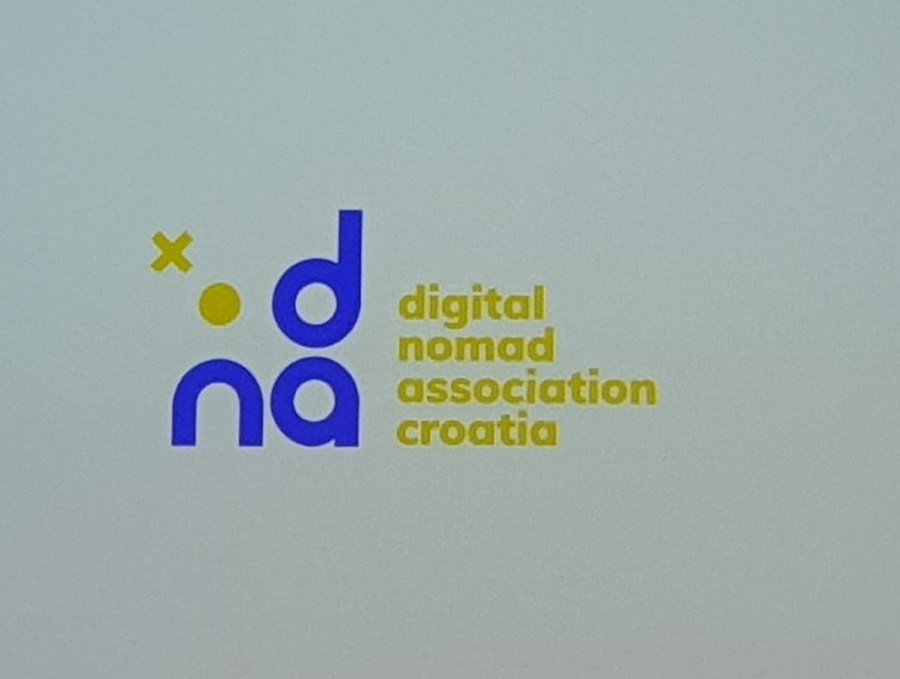
De Jong gave an update on the visa progress during his keynote speech at the conference, as well as answering the many questions that came his way both from the live audience and the global online Zoom audience. Discussions within the ministries are ongoing, but there is an urgency to wrap all the legislation by the end of the year, and de Jong expects the visa to become a reality during the first quarter of 2021. One of the tax architects of the Estonian digital nomad visa - the first in the world and currently the only one in Europe - is also helping the Croatian authorities with the discussions.
Although the visa was expected to dominate de Jong's presentation, the Dutchman had an announcement to make - the imminent launch of the Croatian Digital Nomad Association, which he is co-founding with Polegubic and Karmela Tancabel.
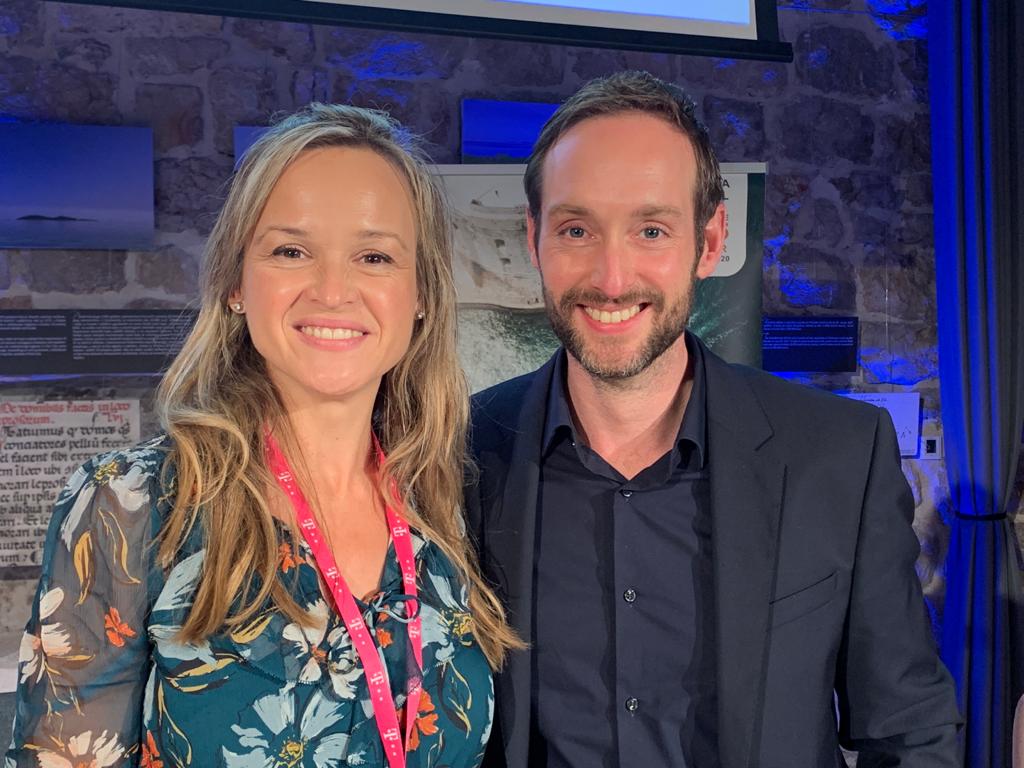
The new digital nomad association will be an excellent addition to Croatia's emerging nomad scene, and with some of its most influential advocates the founders, it starts with a lot of credibility.
The new association has five key aims:
- Information - the new association website, soon to be launched, will be a hub of information for all digital nomad related issues and services.
- Accreditation and certification - the association will work with Croatian businesses which want to offer their services to digital nomads with the introduction of an accreditation and certification scheme. Accommodation providers, for example, will sign up to a code of conduct protecting nomads from sudden hikes in accommodation prices for the tourist season.
- Education - the association will also be engaged in organising events around Croatia promoting the digital nomad agenda. One of the benefits of progressive digital nomads entering Croatian communities is the opportunity to give something back, and the potential to positively impact the Croatian mindset through nomad presentations and seminars in Croatian schools and universities is particularly exciting.
- Community - lifestyle means social life and community for the majority, and the association will be focused on building up a diverse and accessible community for incoming nomads.
- Representation - this new digital nomad initiative is a new venture for Croatia, and there will inevitably be problems and frustrations on the road ahead. The Croatian Digital Nomad Association aims to be a bridge between the authorities and the nomad community to iron out problems and bottlenecks. With de Jong's access to the decision makers who are shaping the digital nomad visa - and their responsiveness to his requests - should prove a useful mechanism to ensure a smoother experience all round.
The association website is currently under construction and will be launched shorted. Stay tuned to the dedicated TCN digital nomad news section for the latest updates.
Read more from the Dubrovnik for Digital Nomads conference - "Croatia Has the Potential To Be World's Number 1 Digital Nomad Destination"


